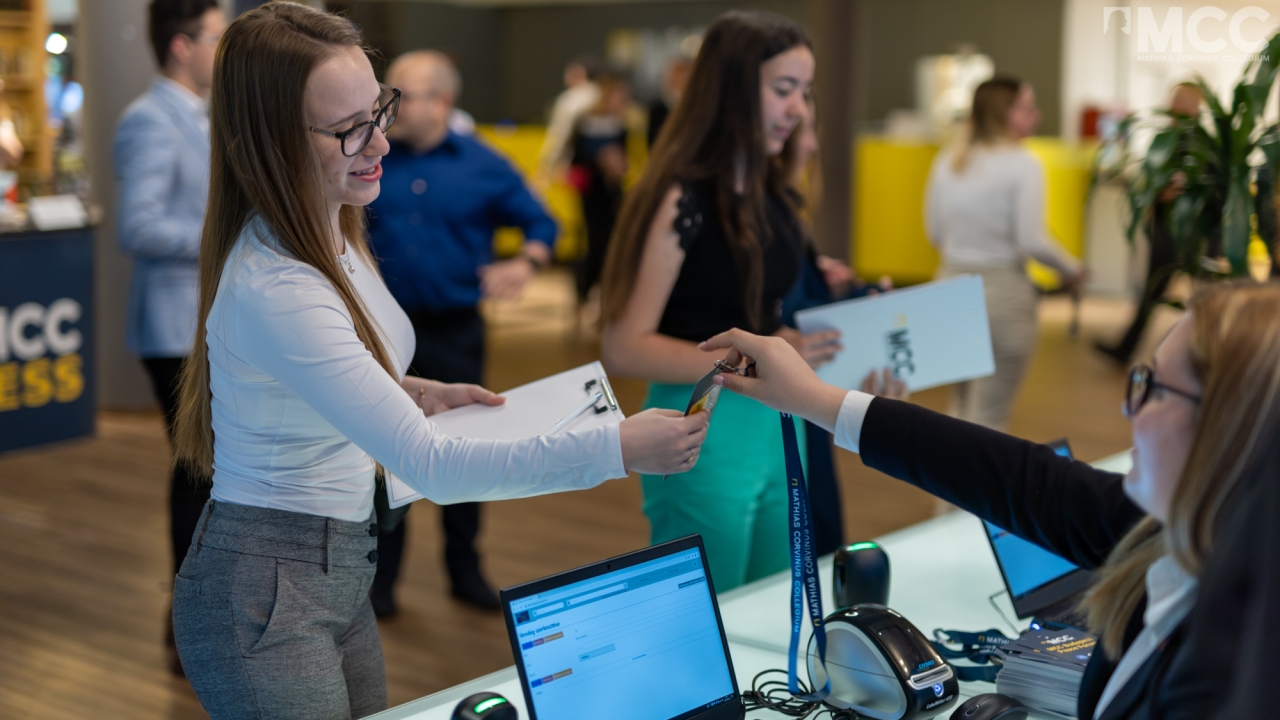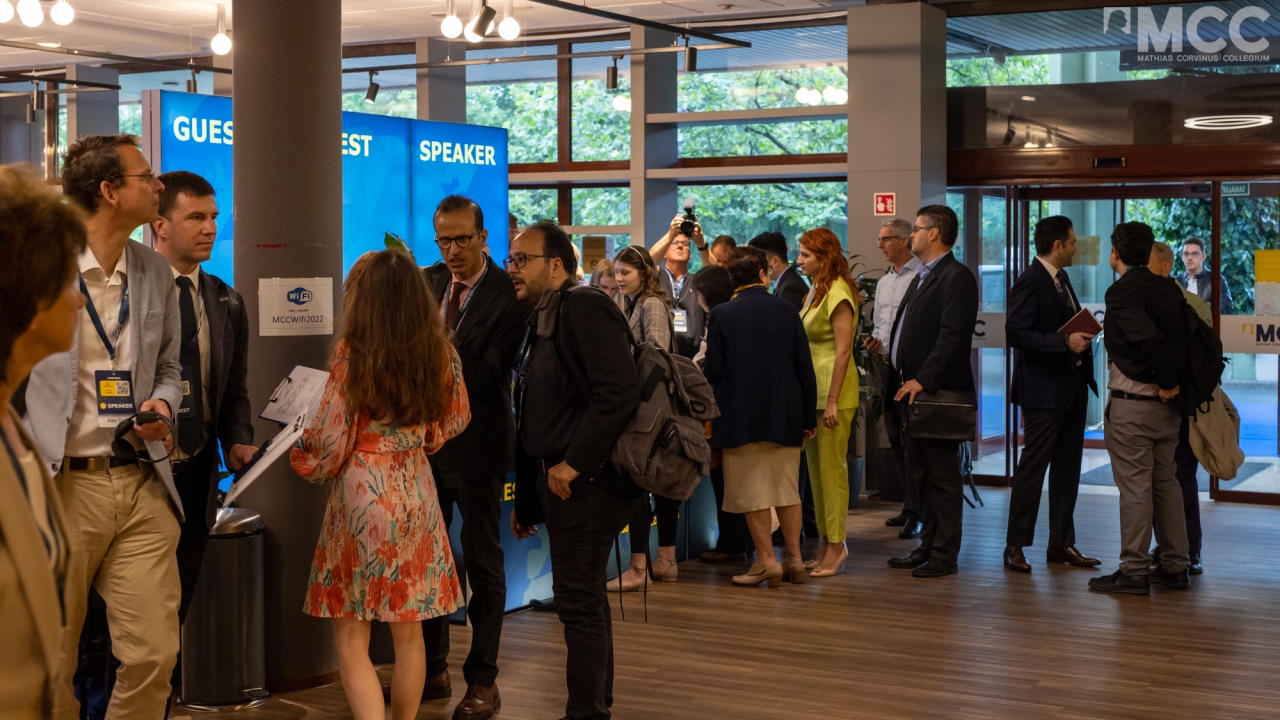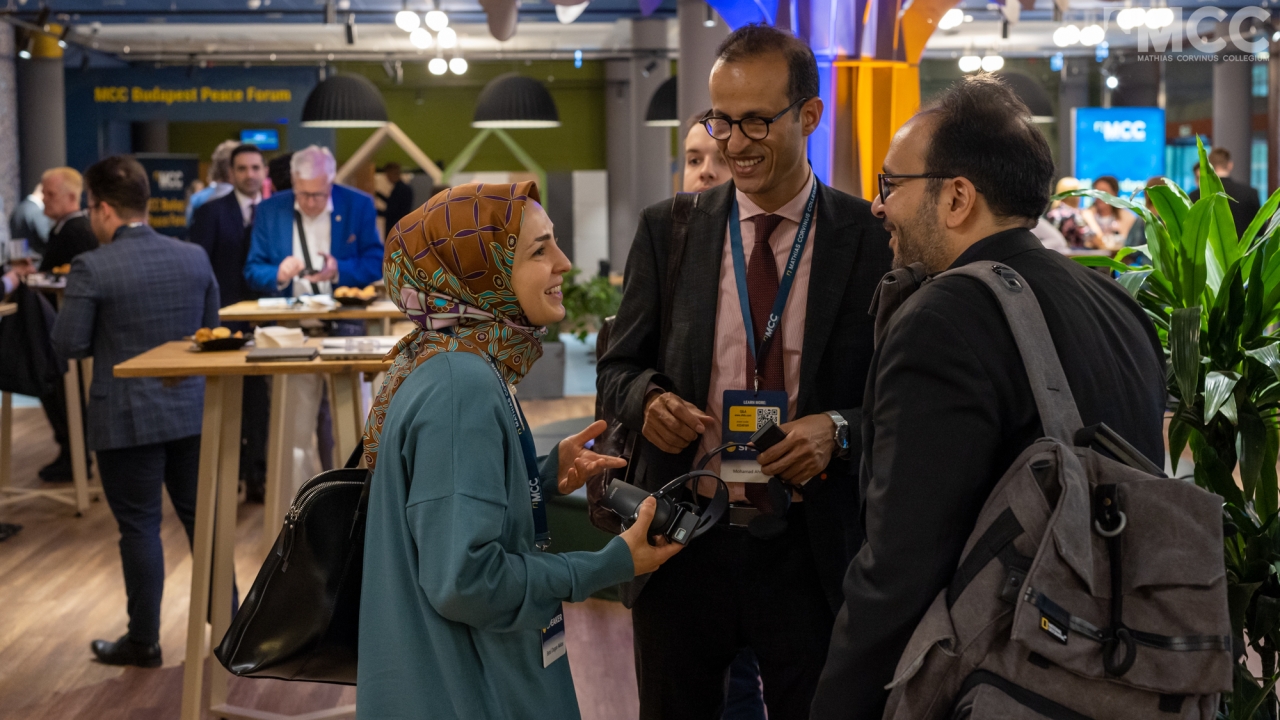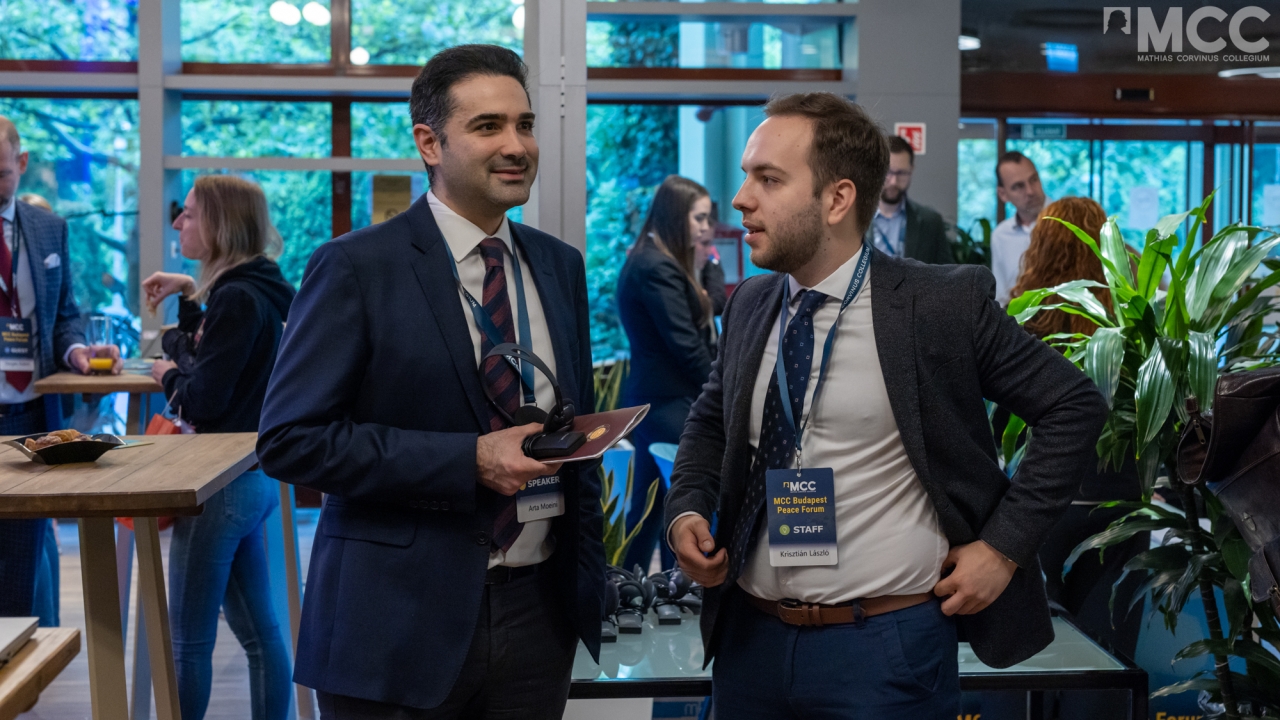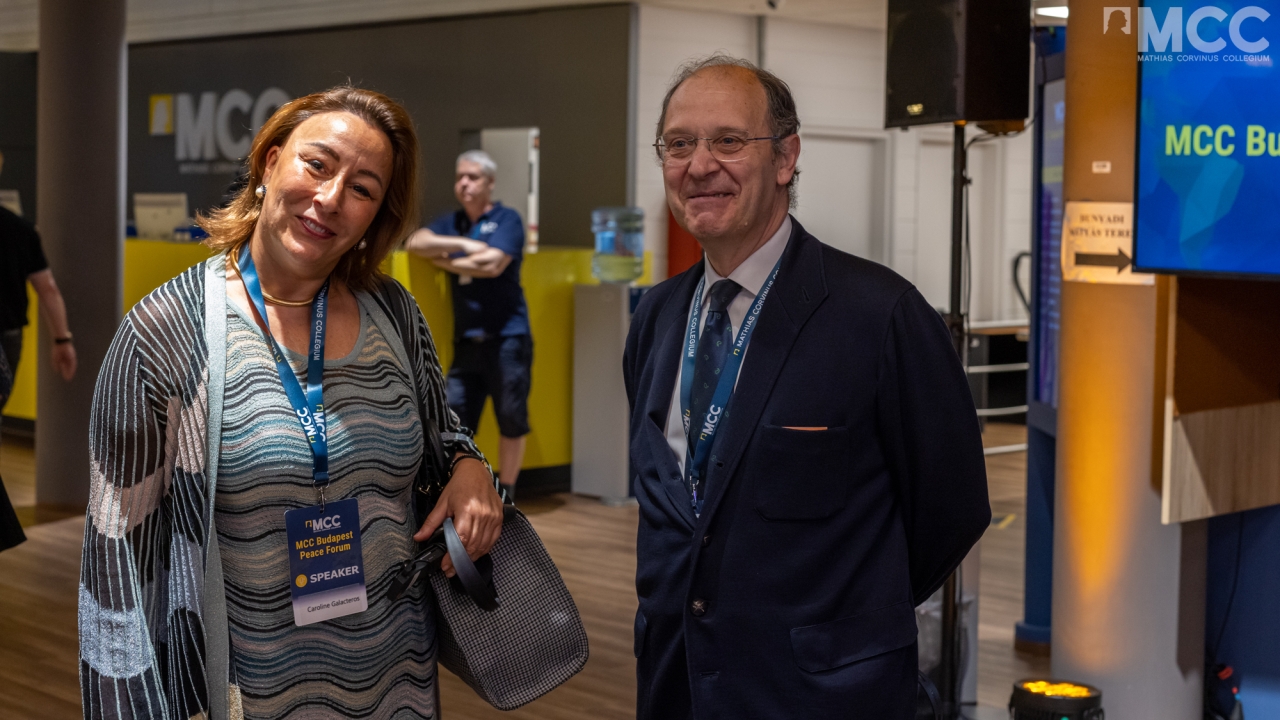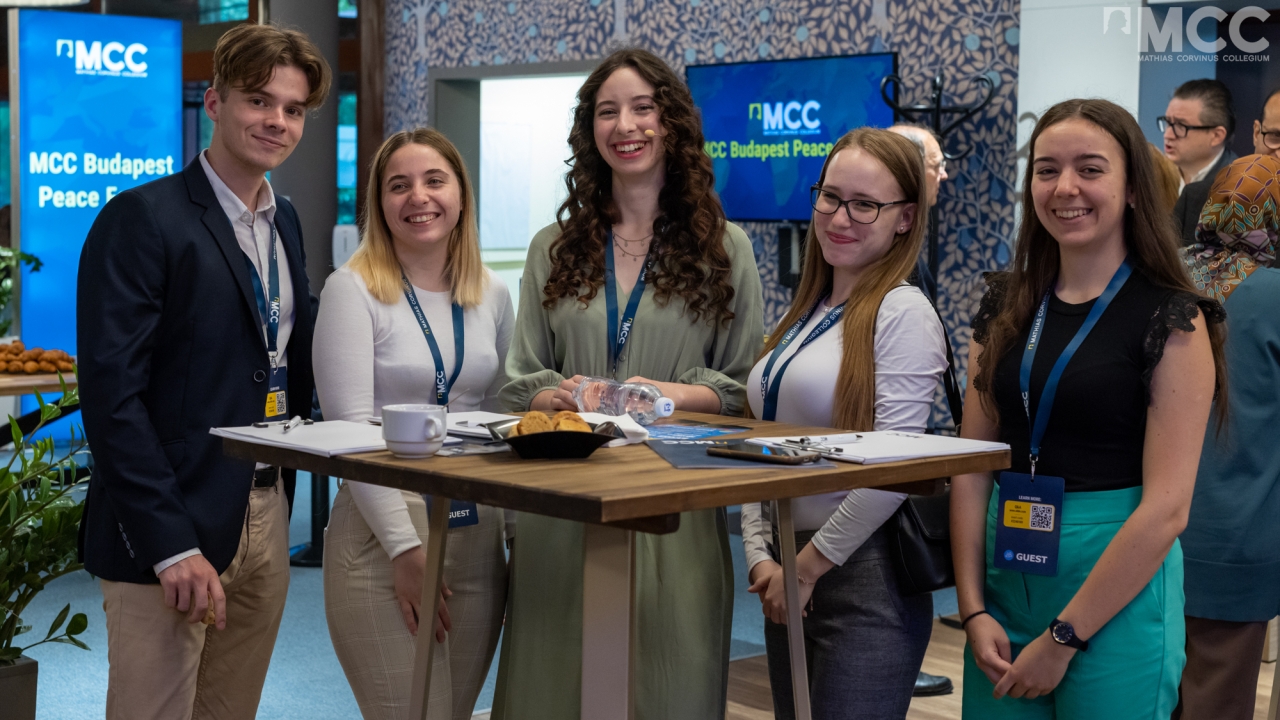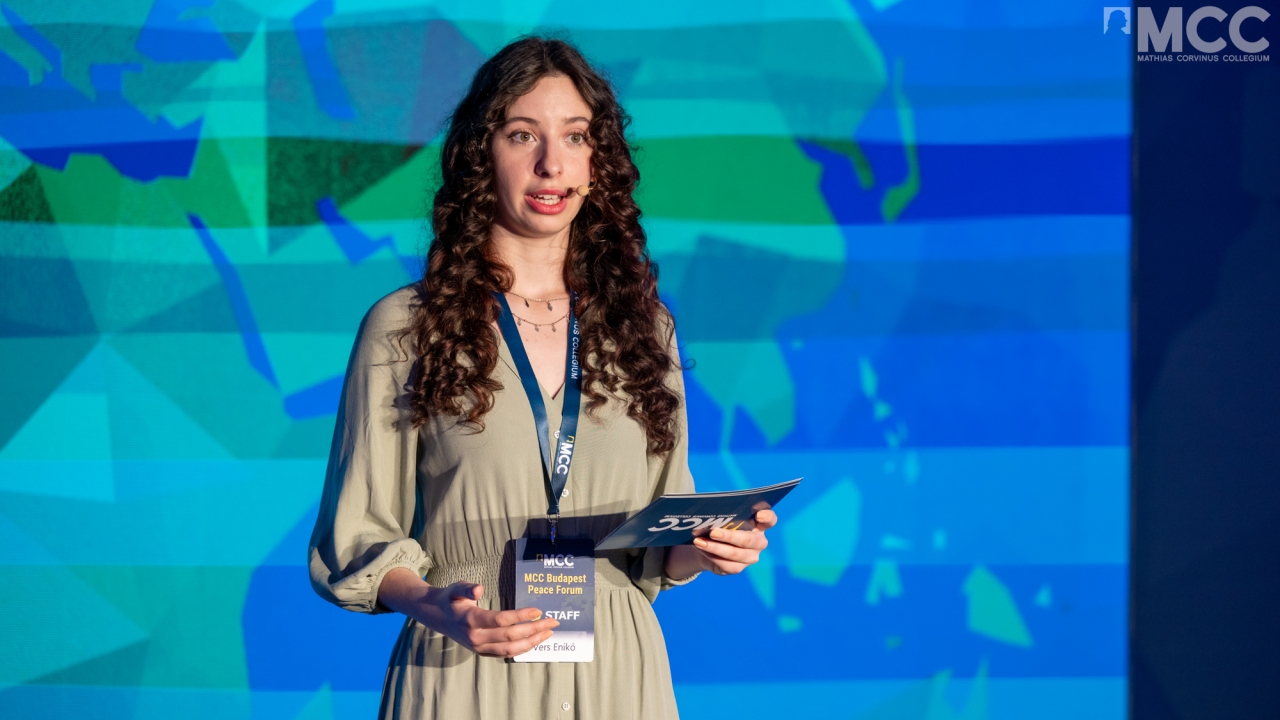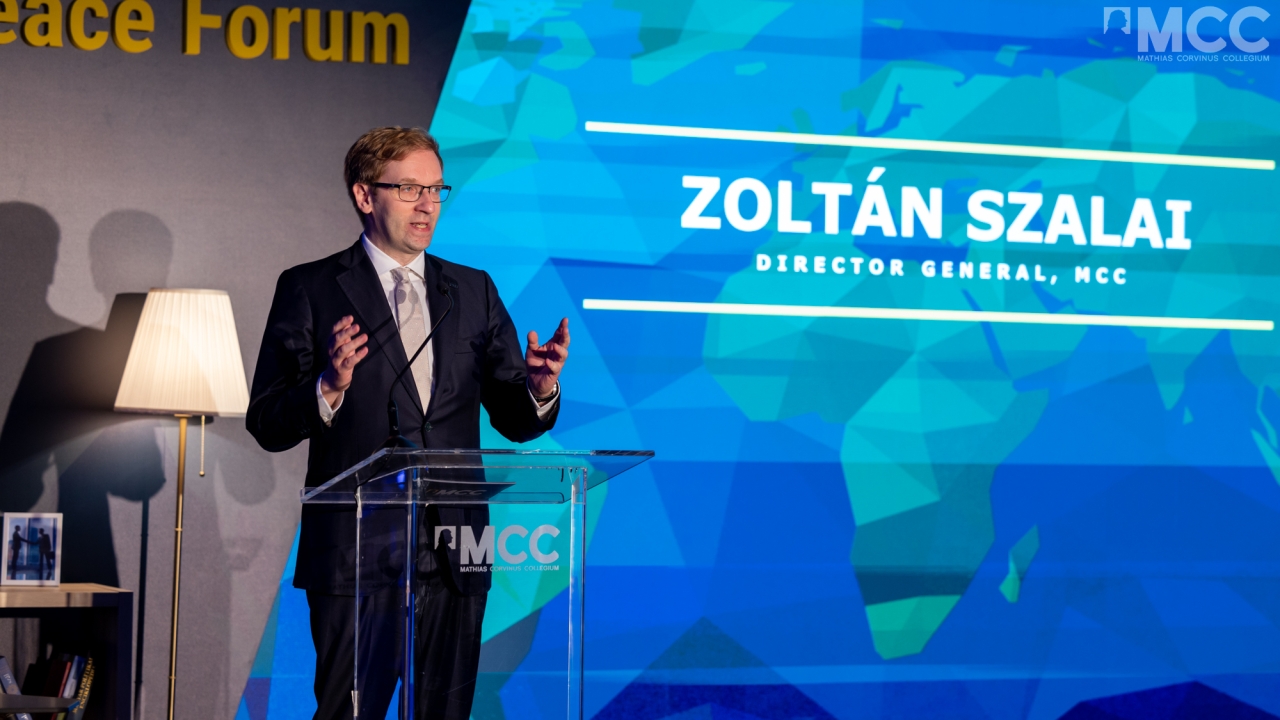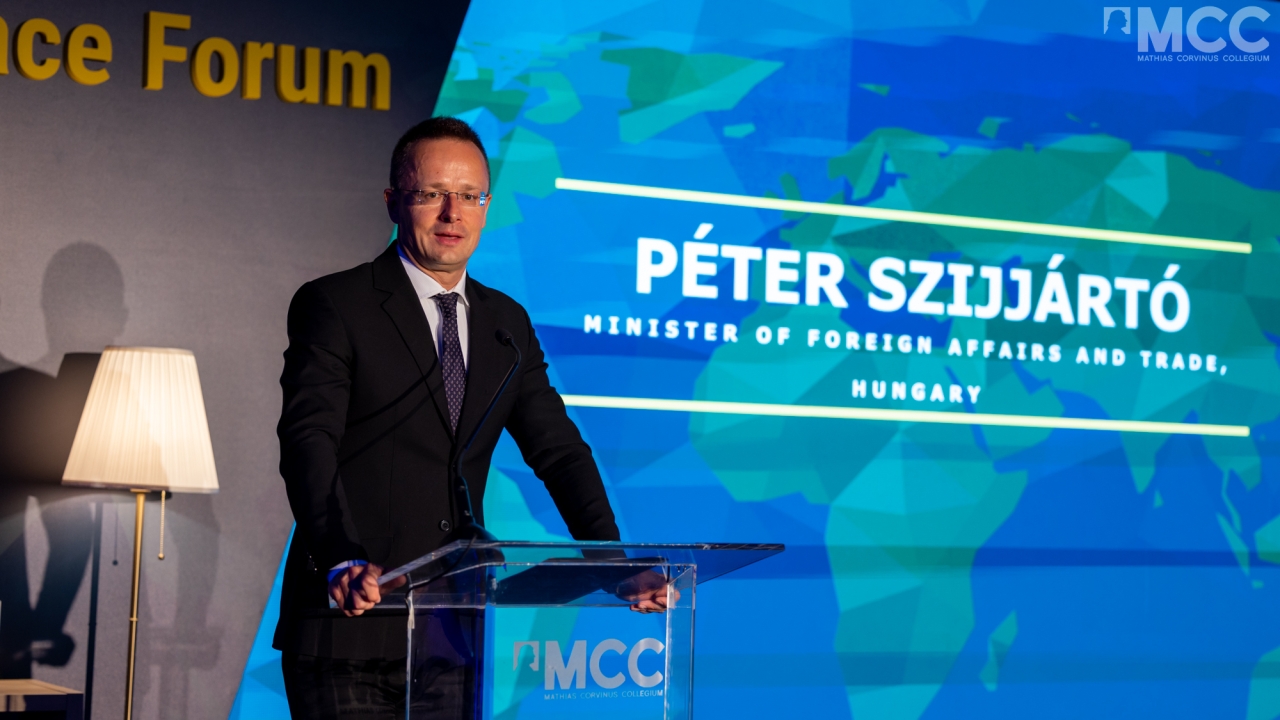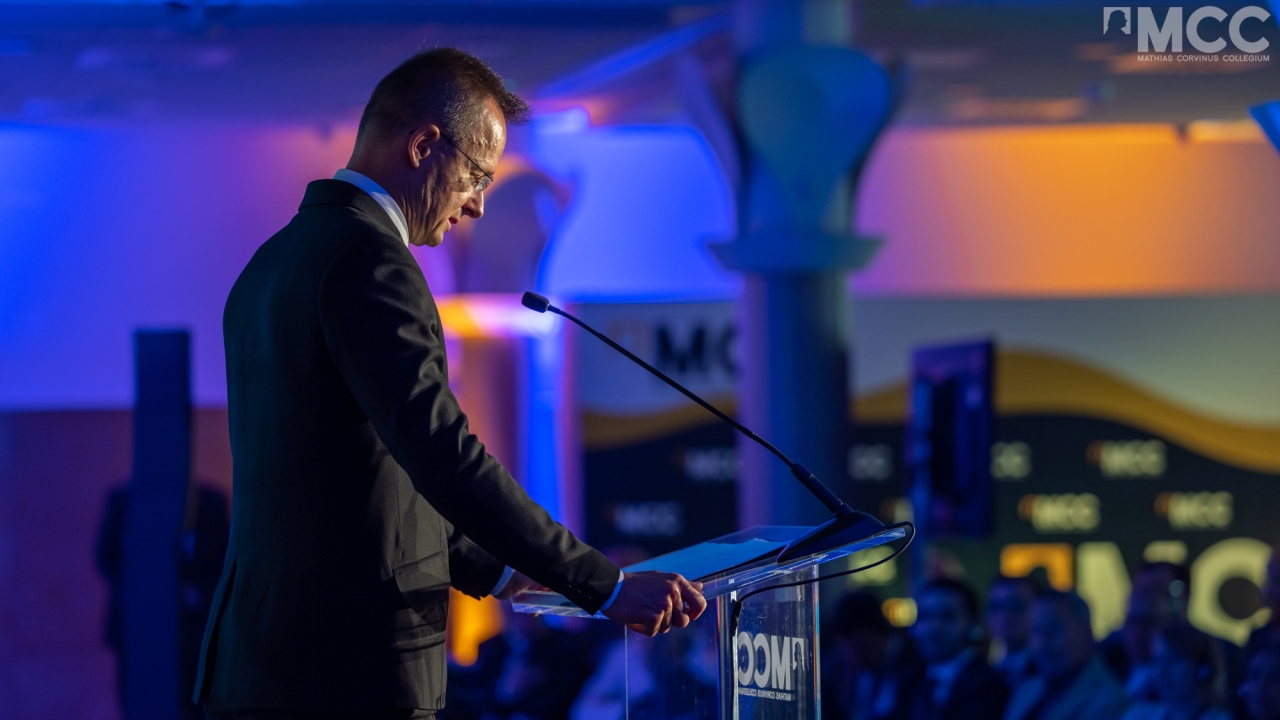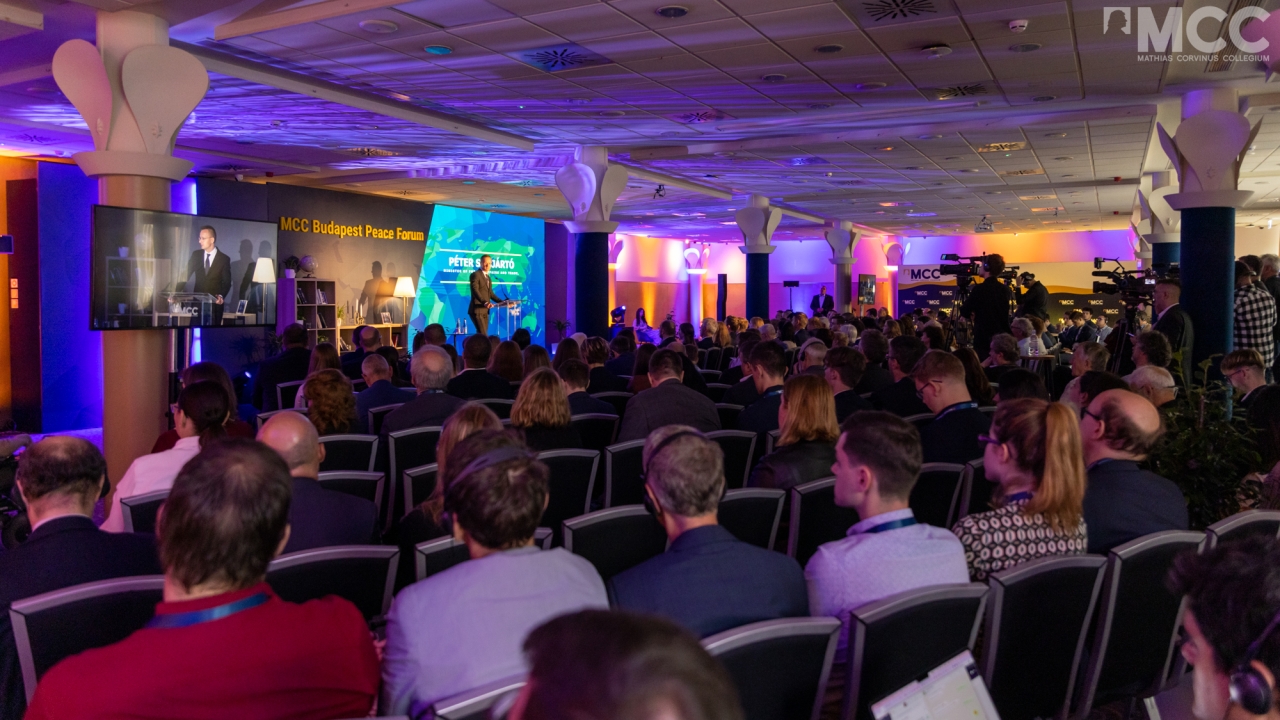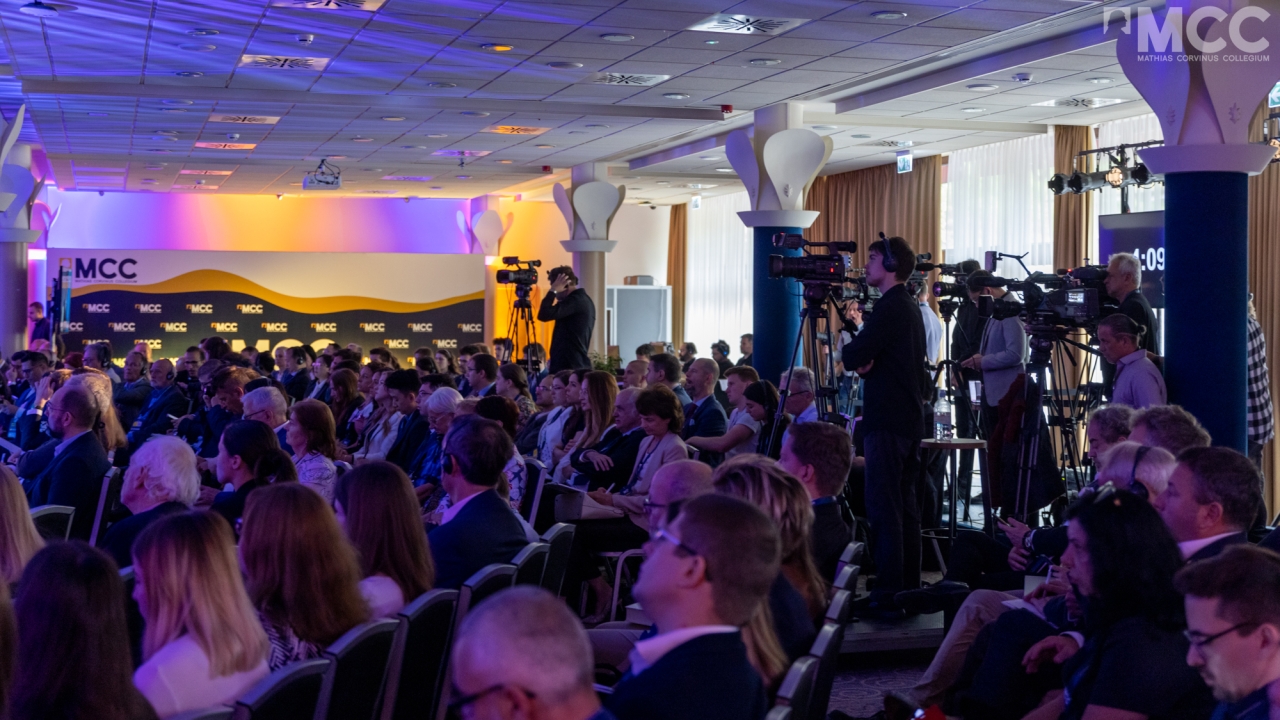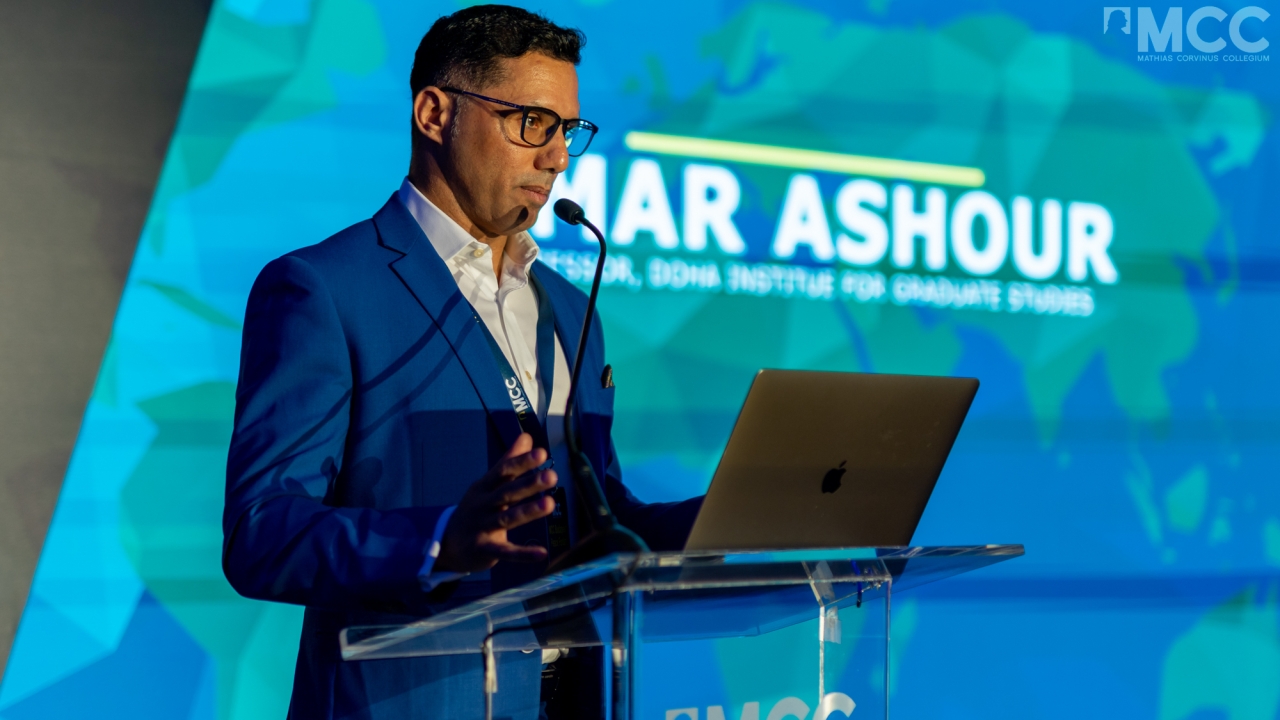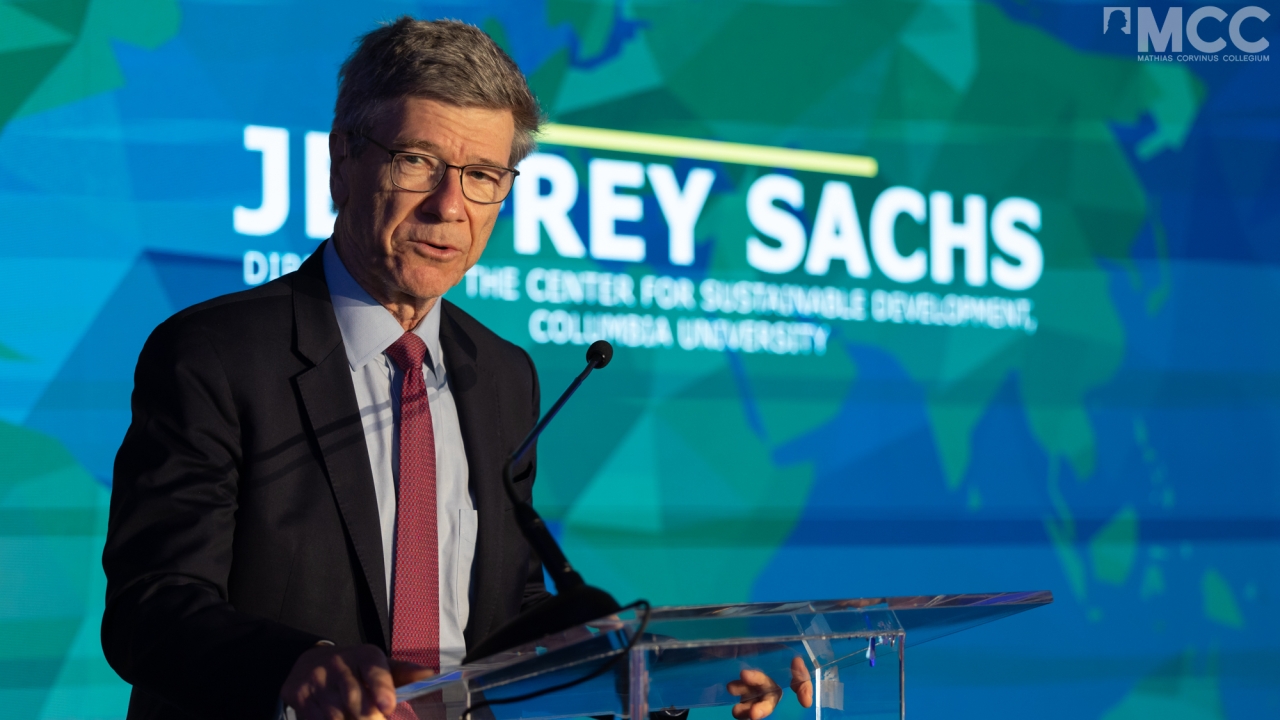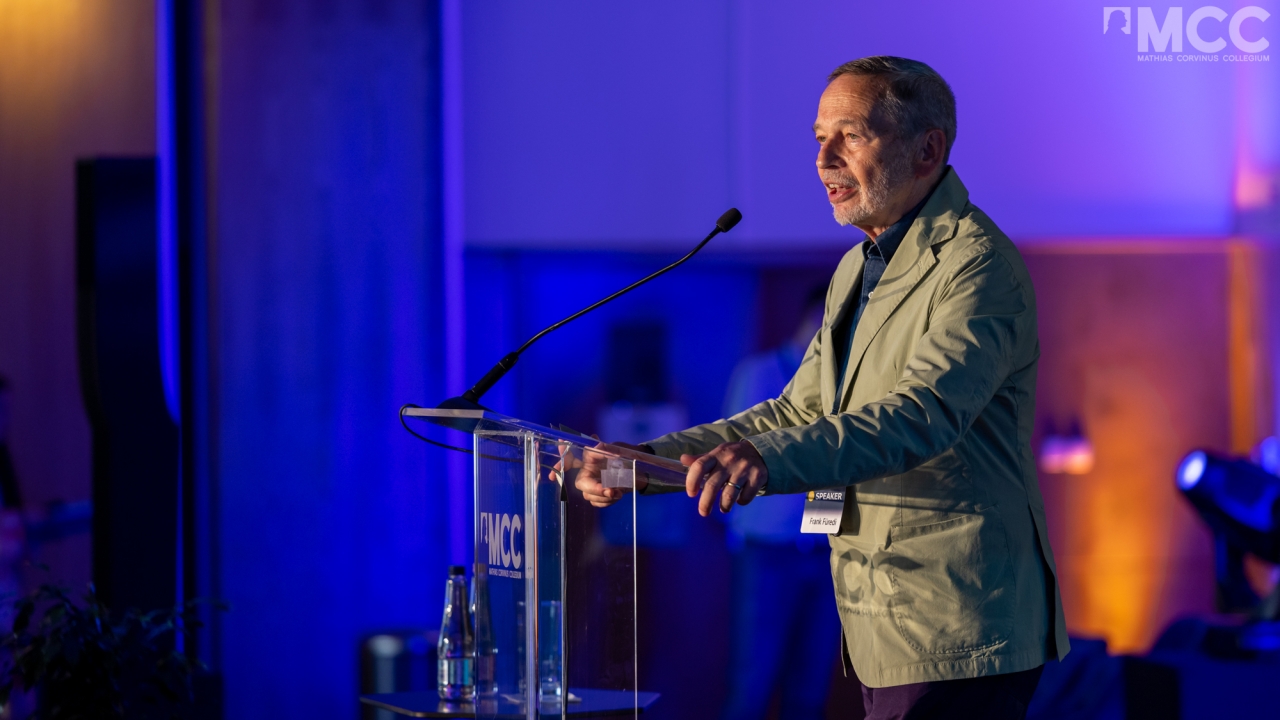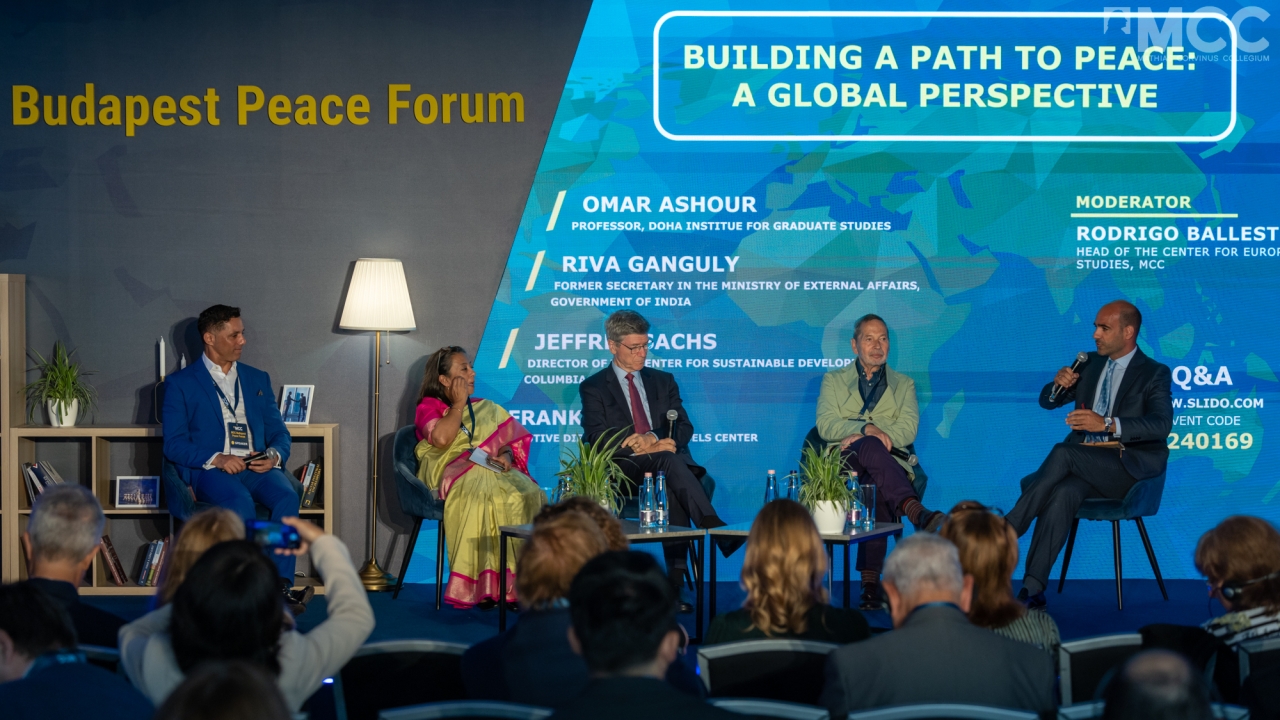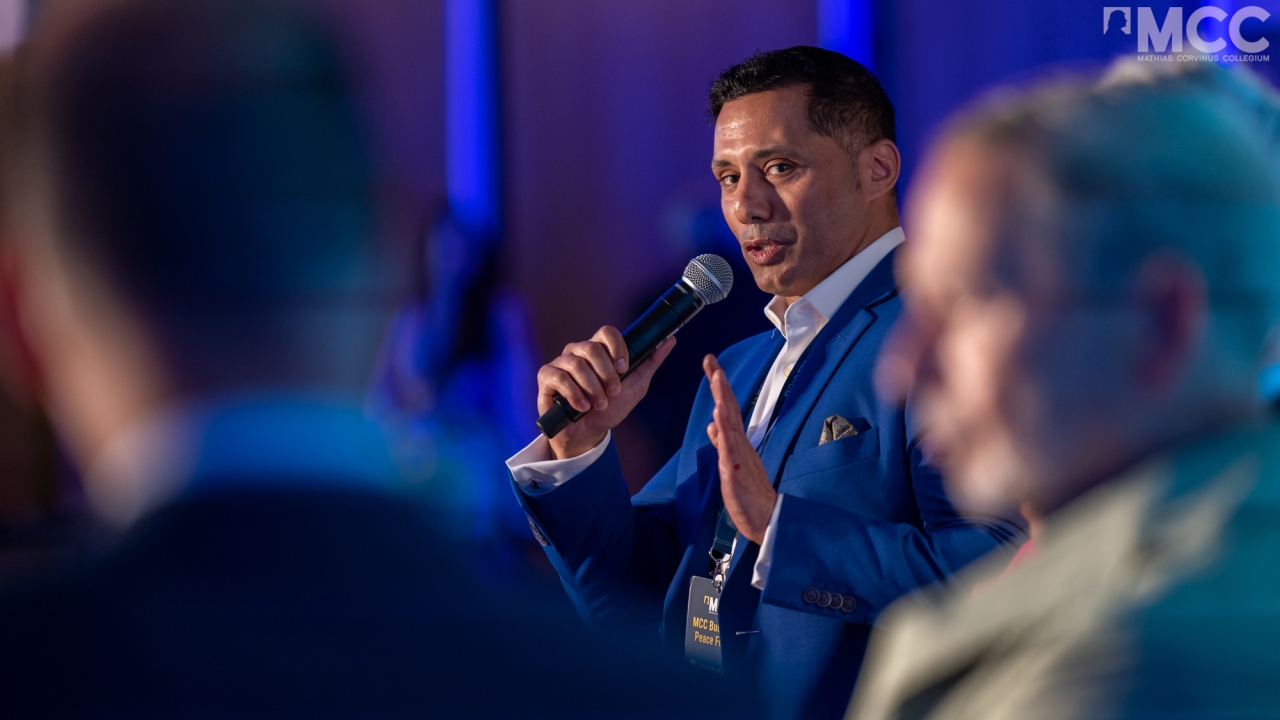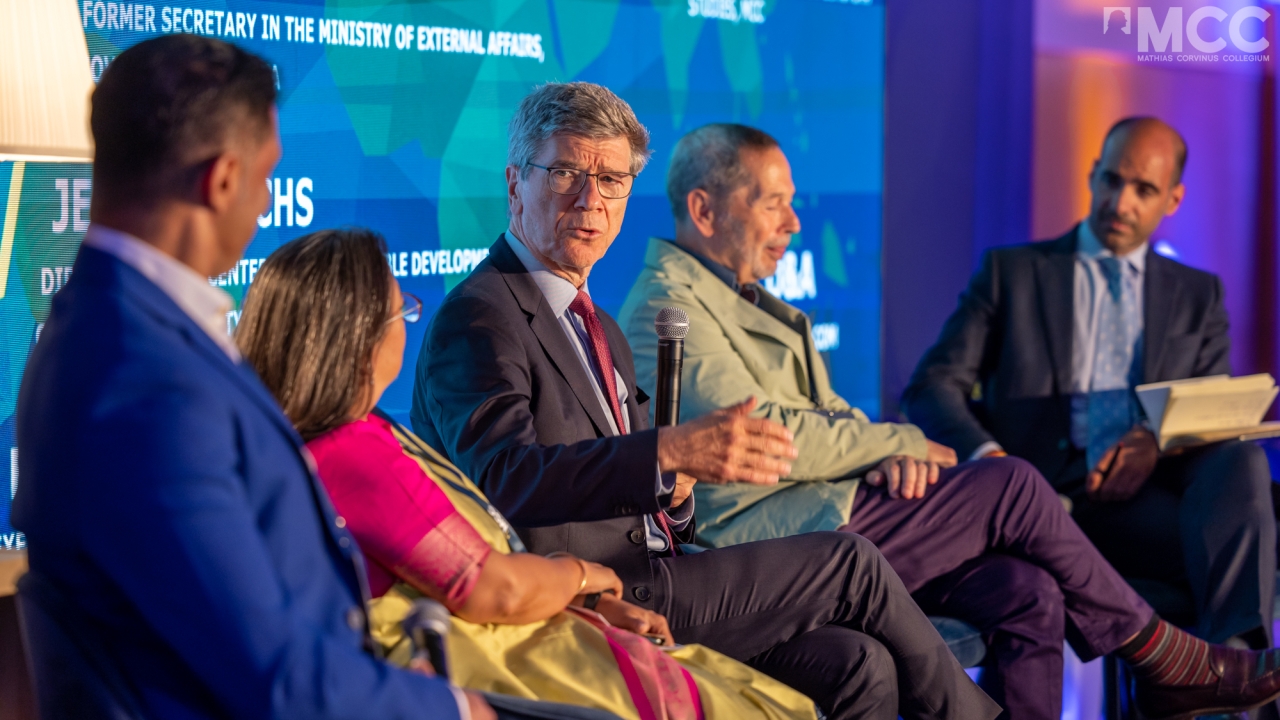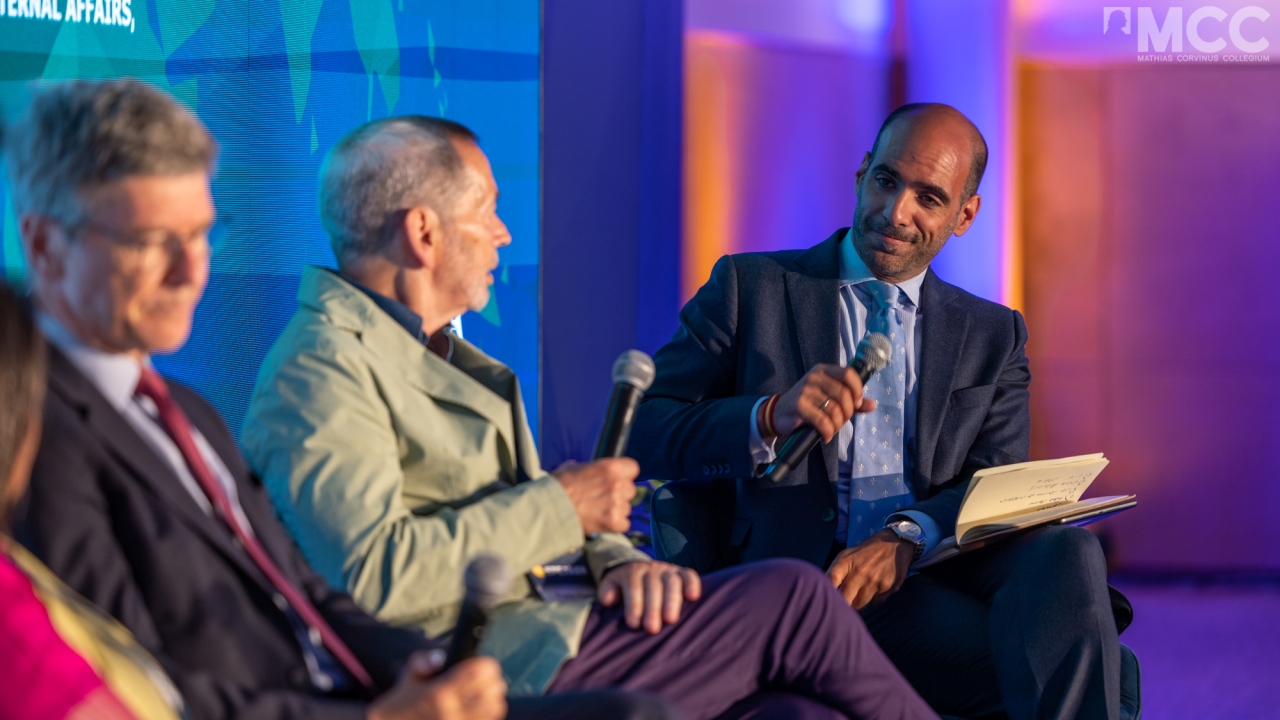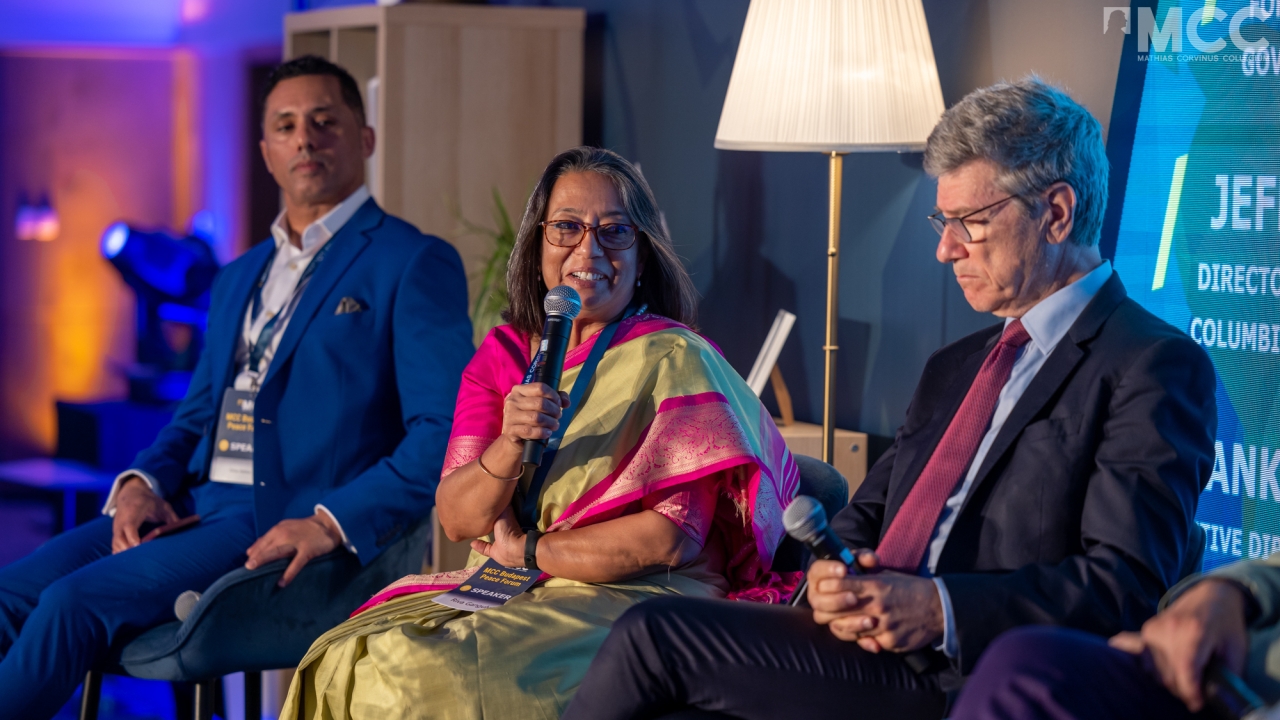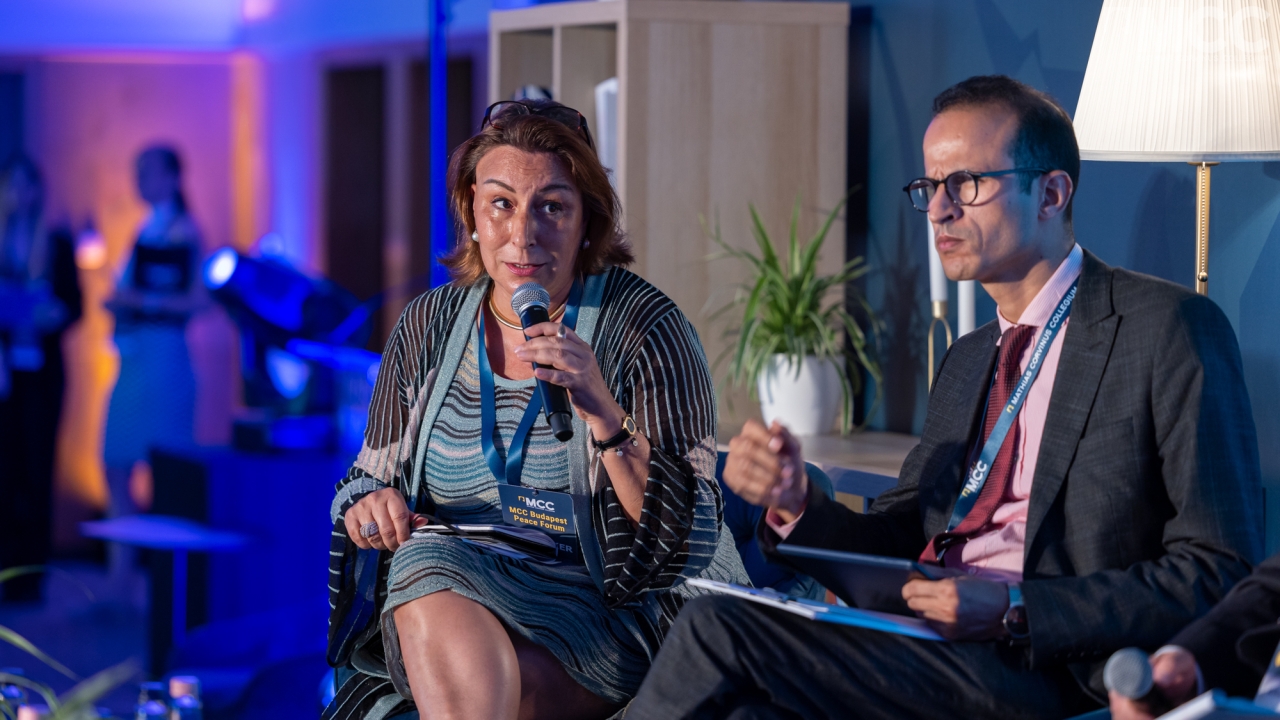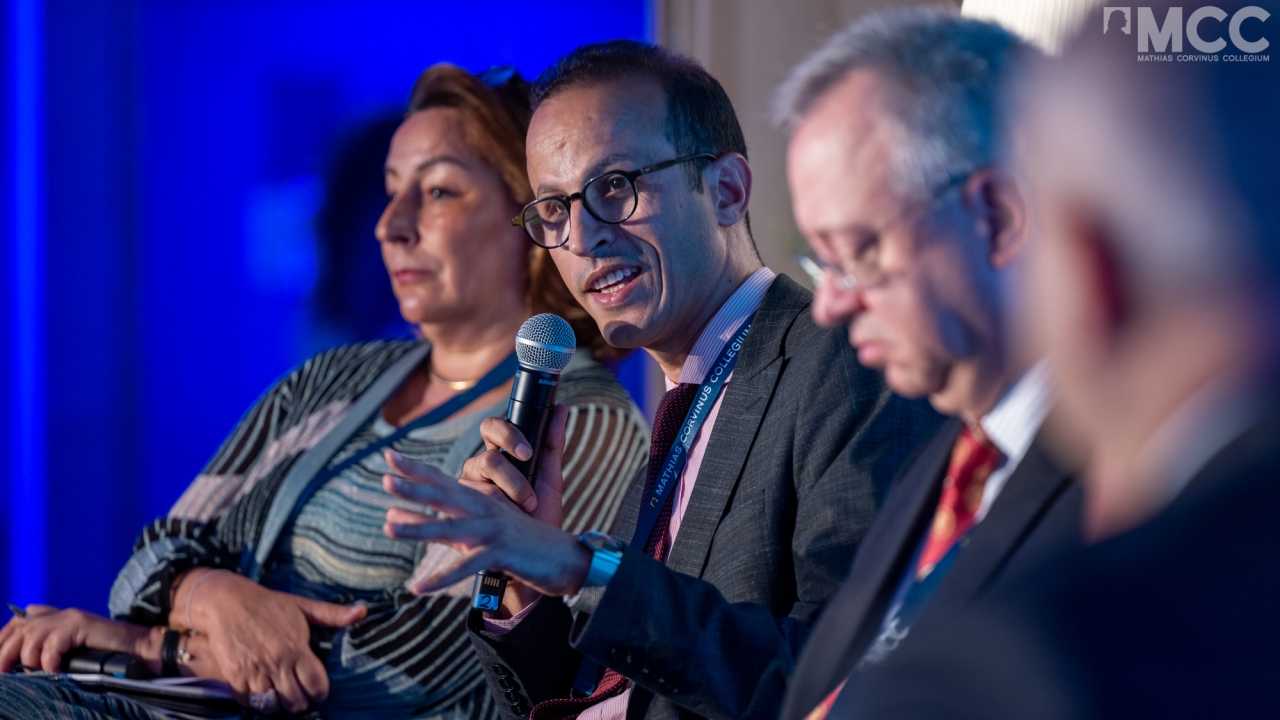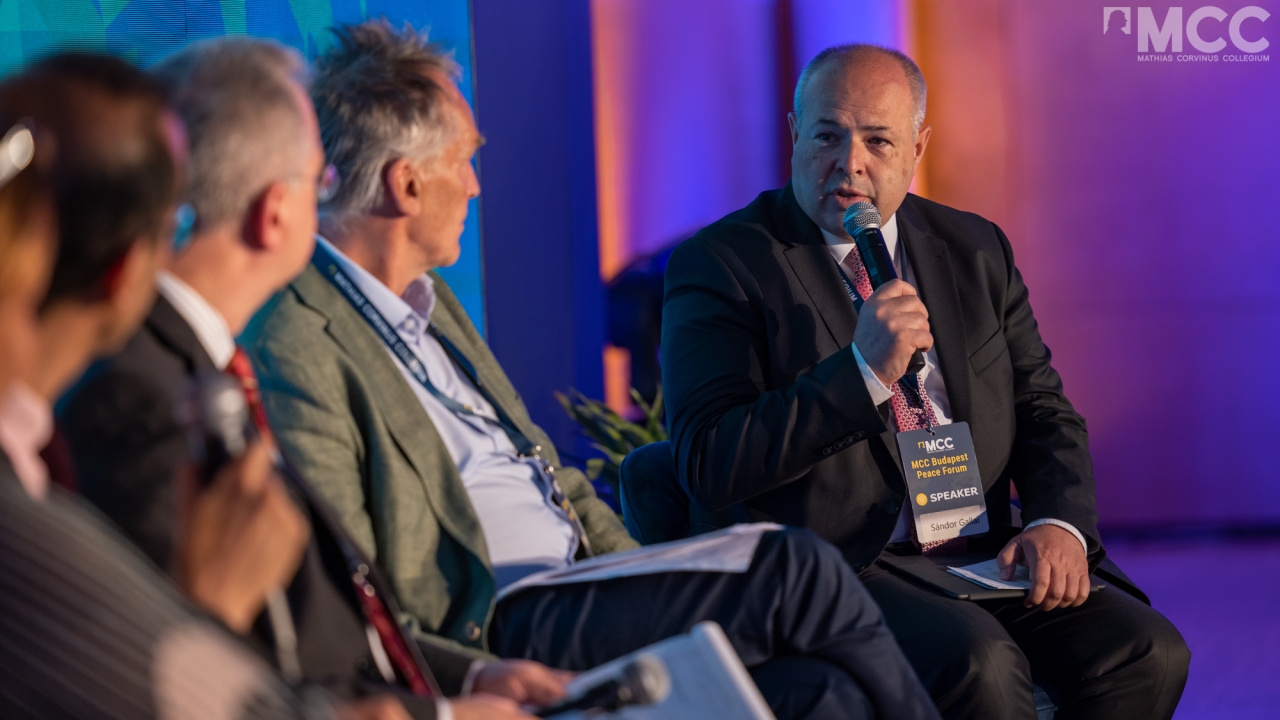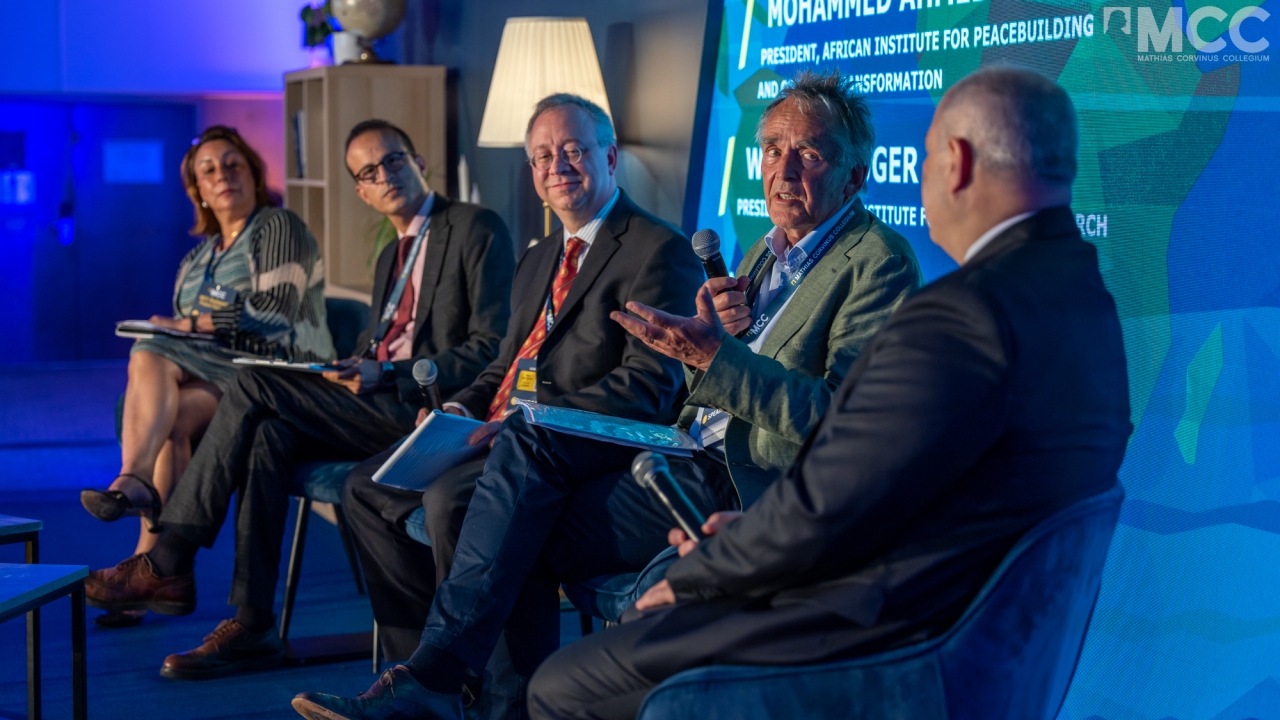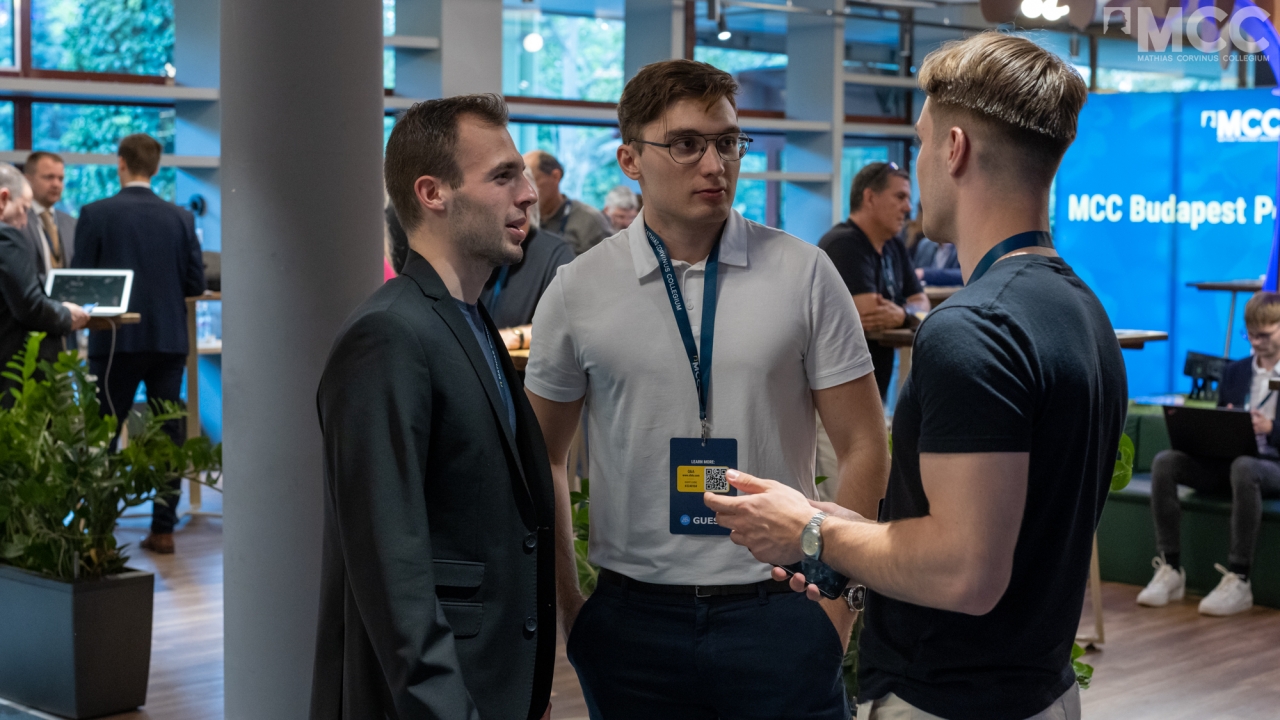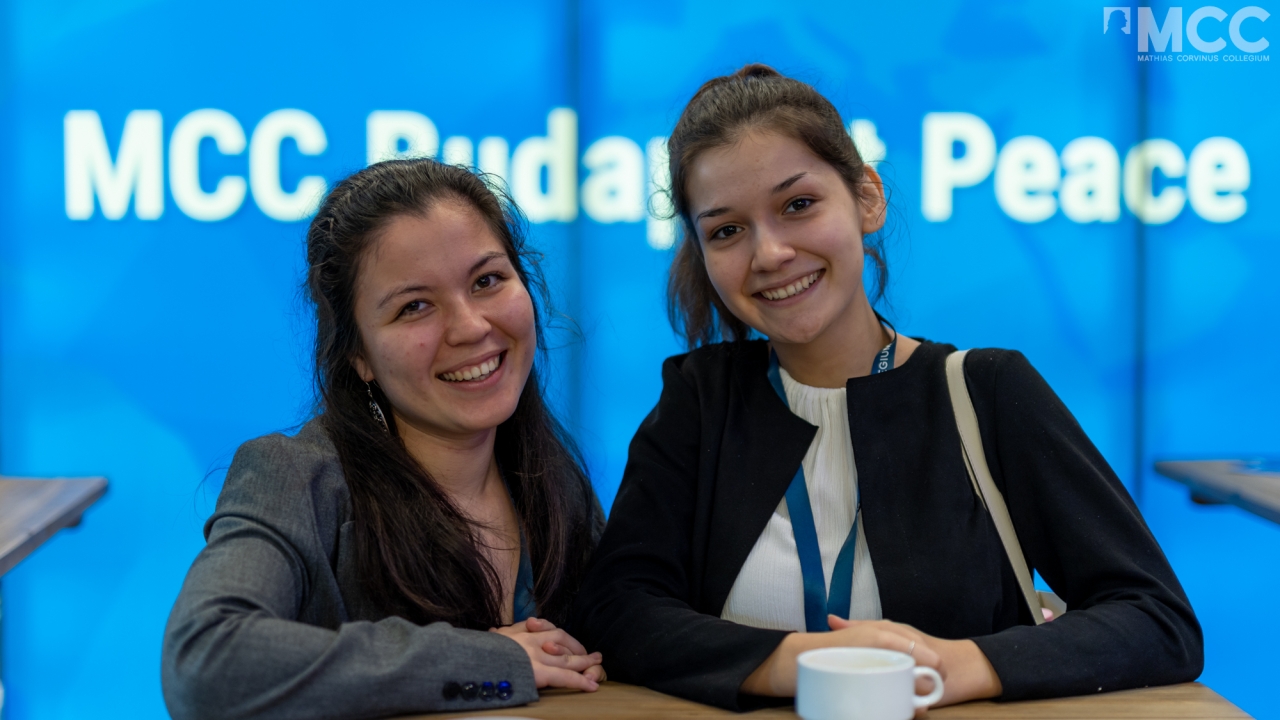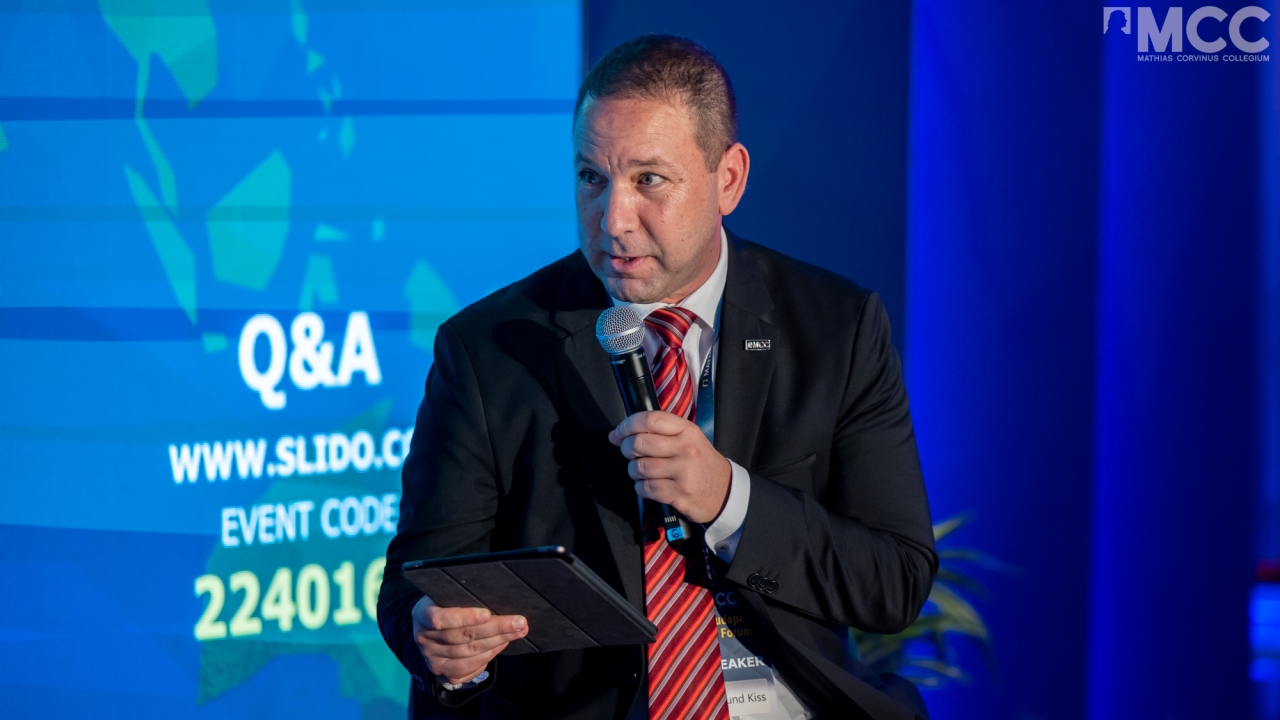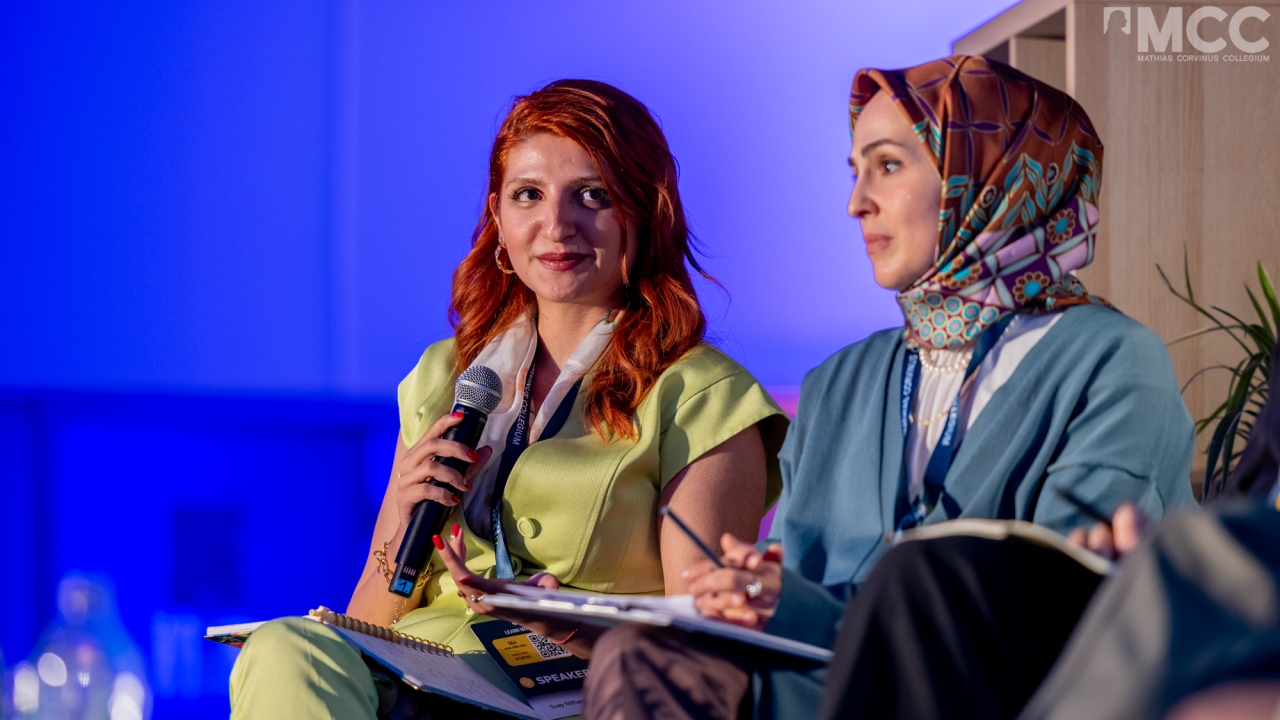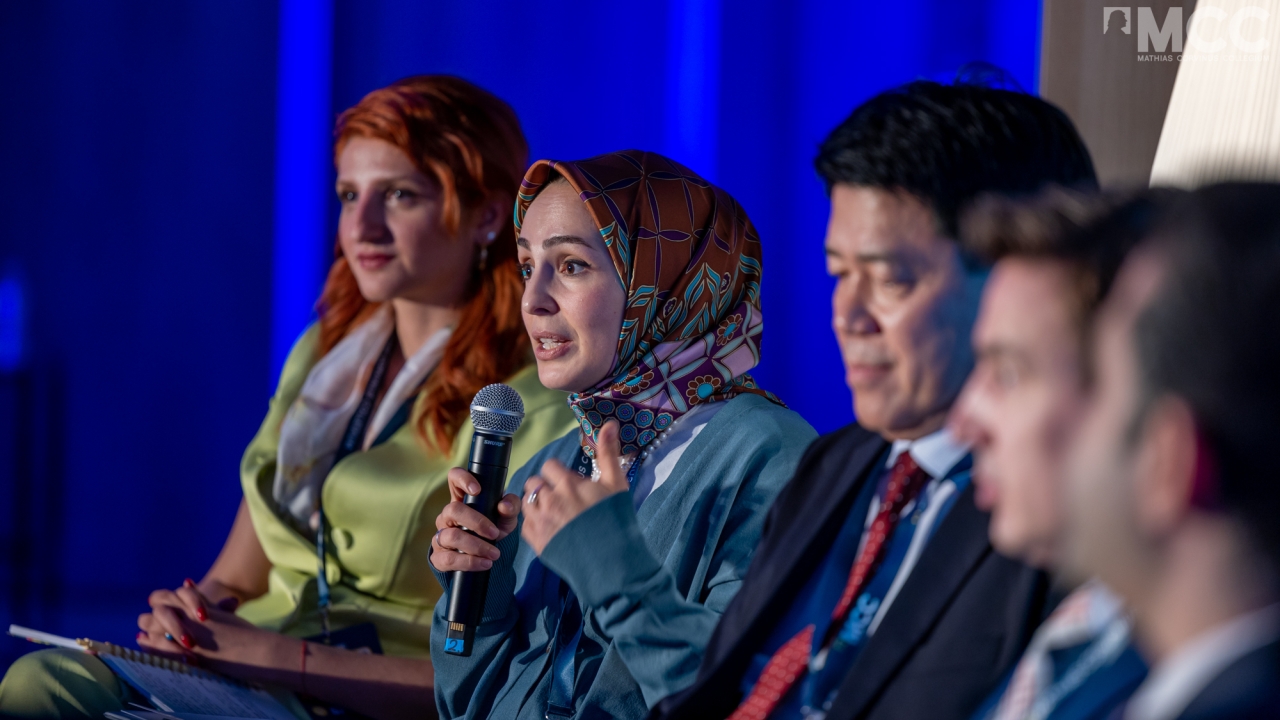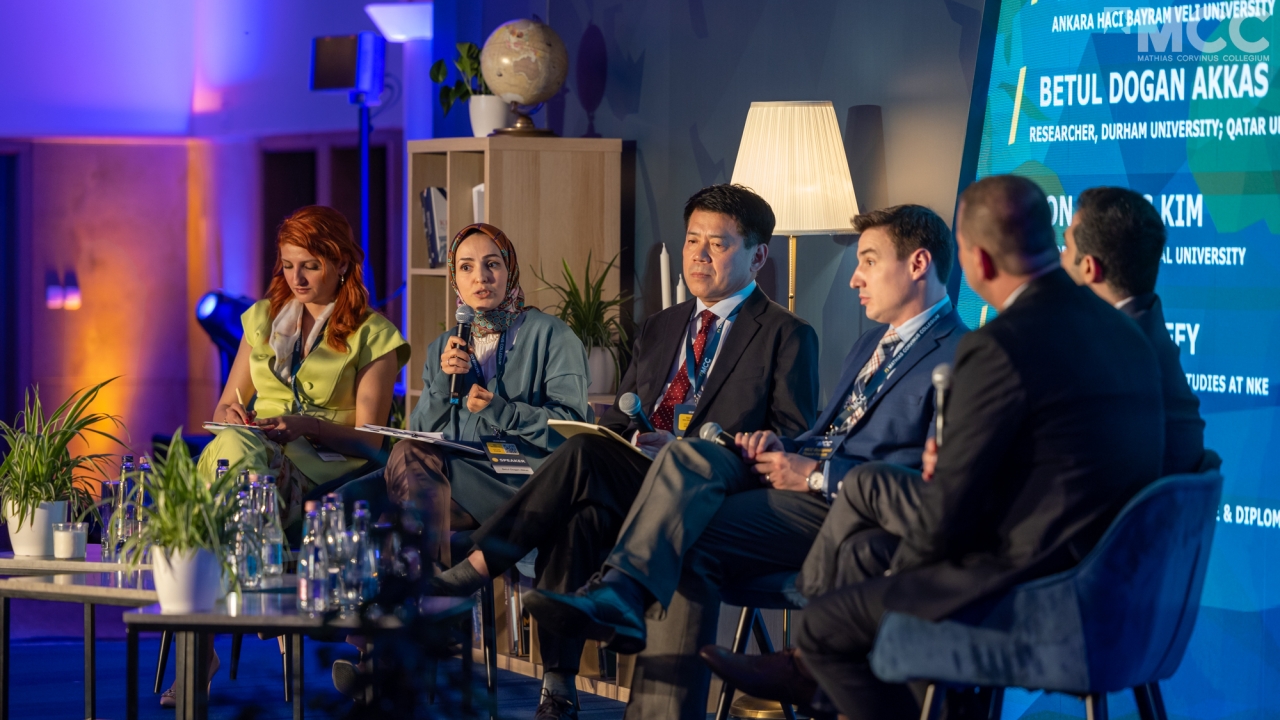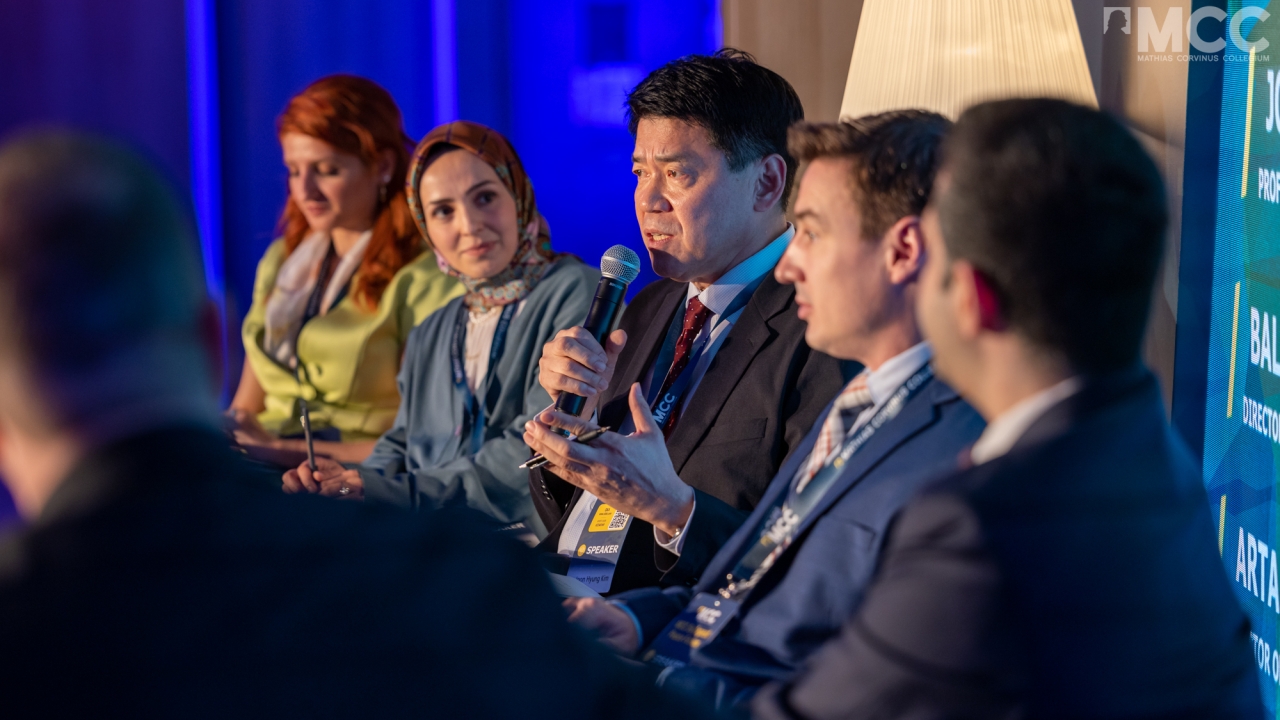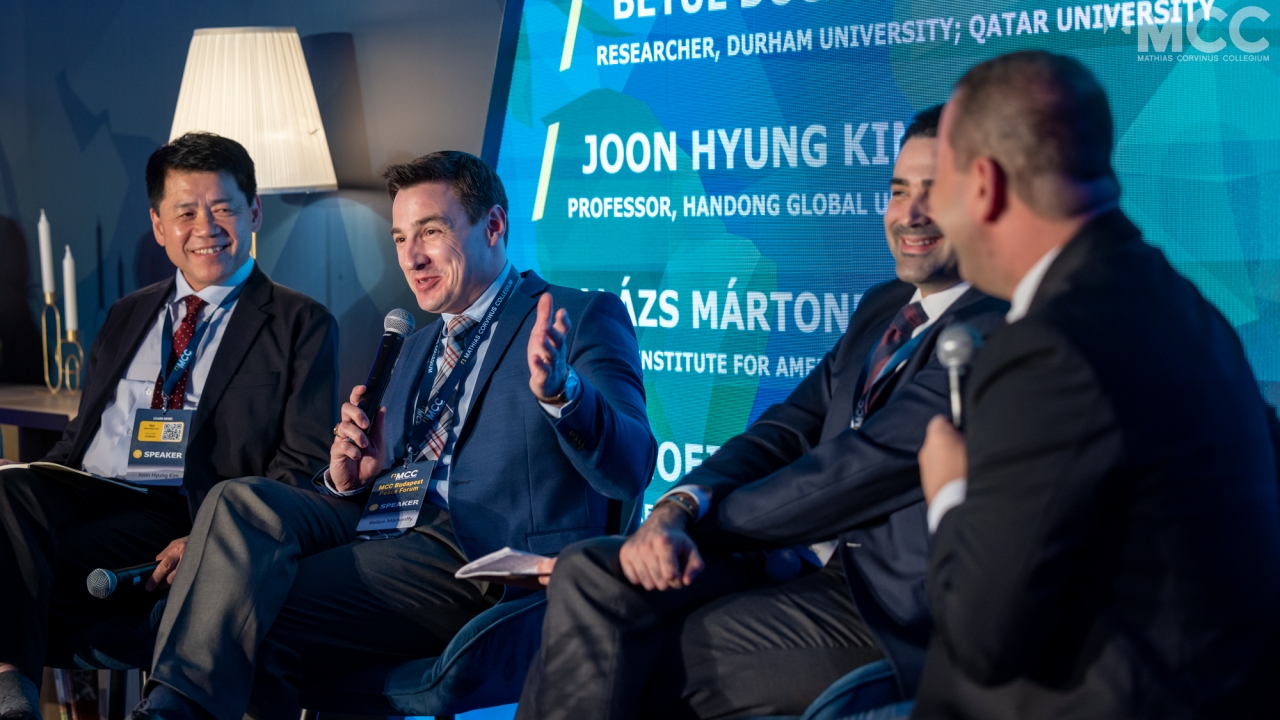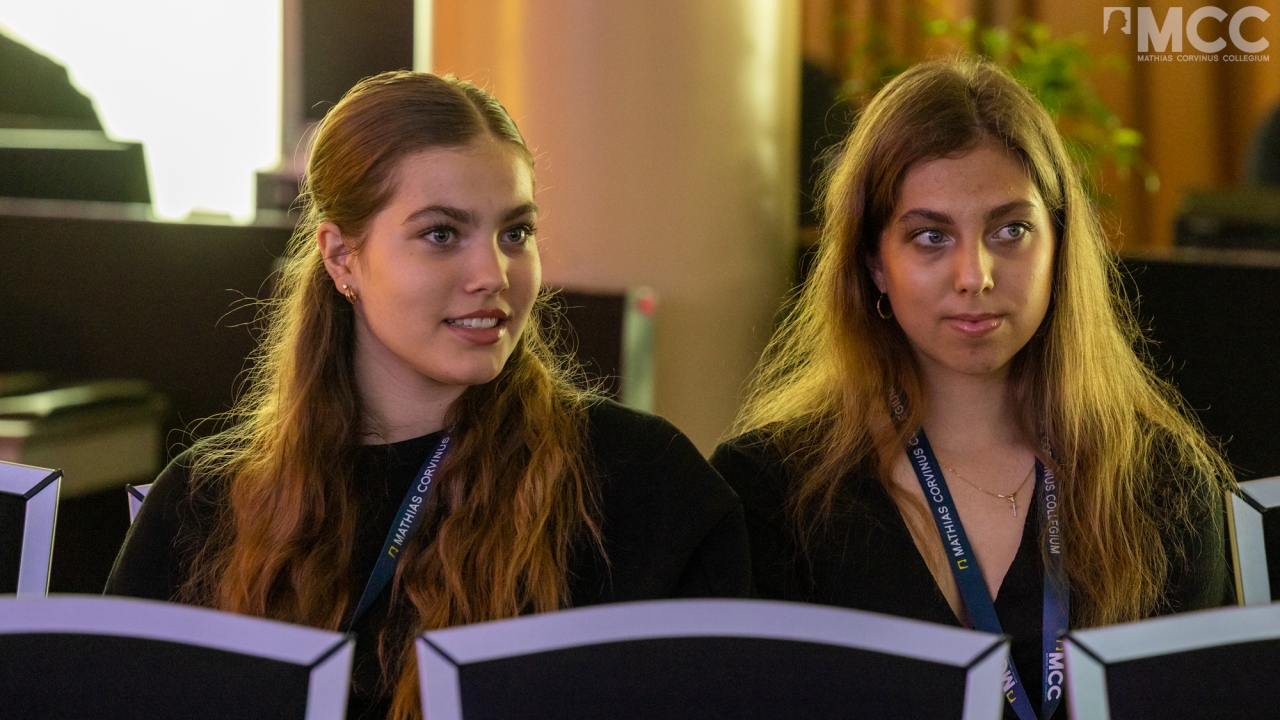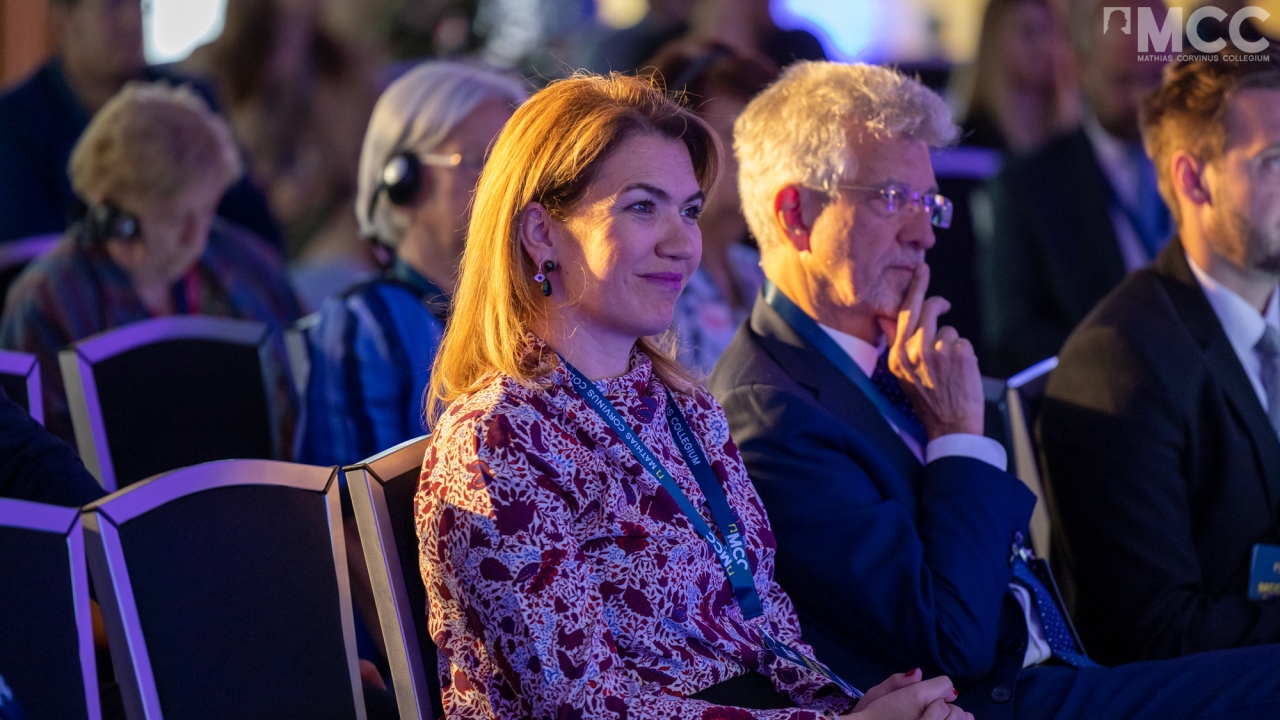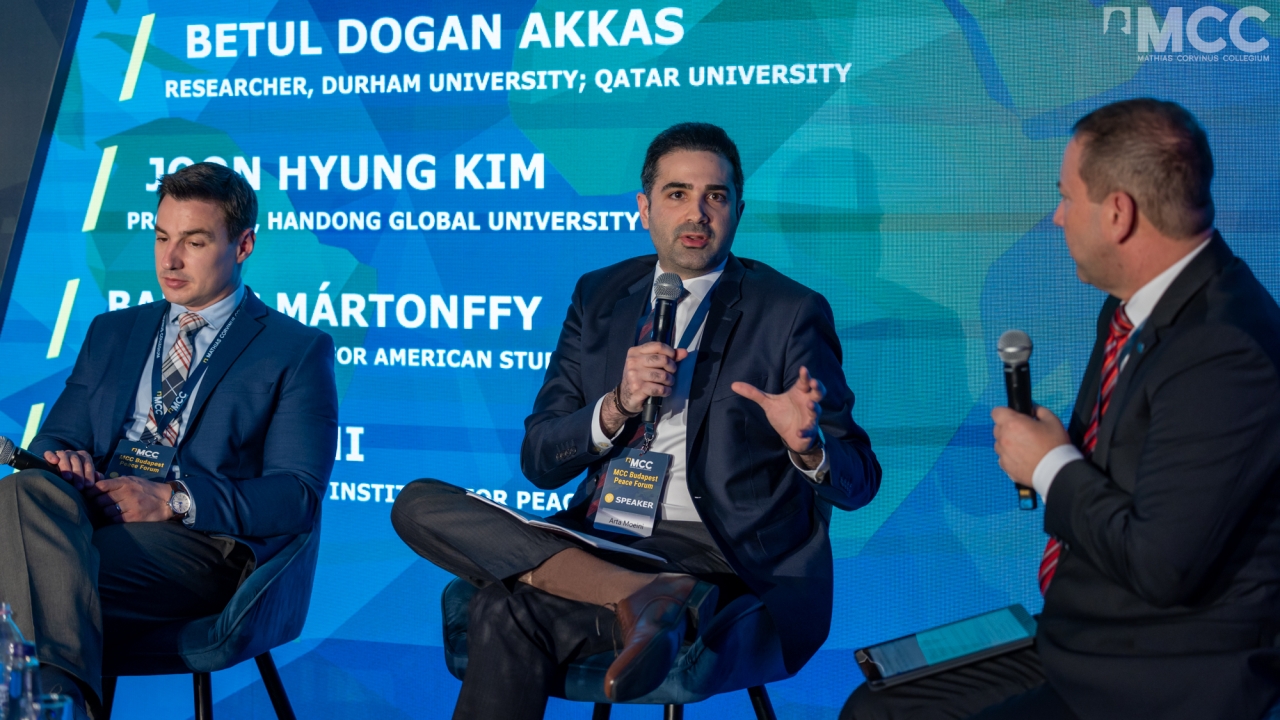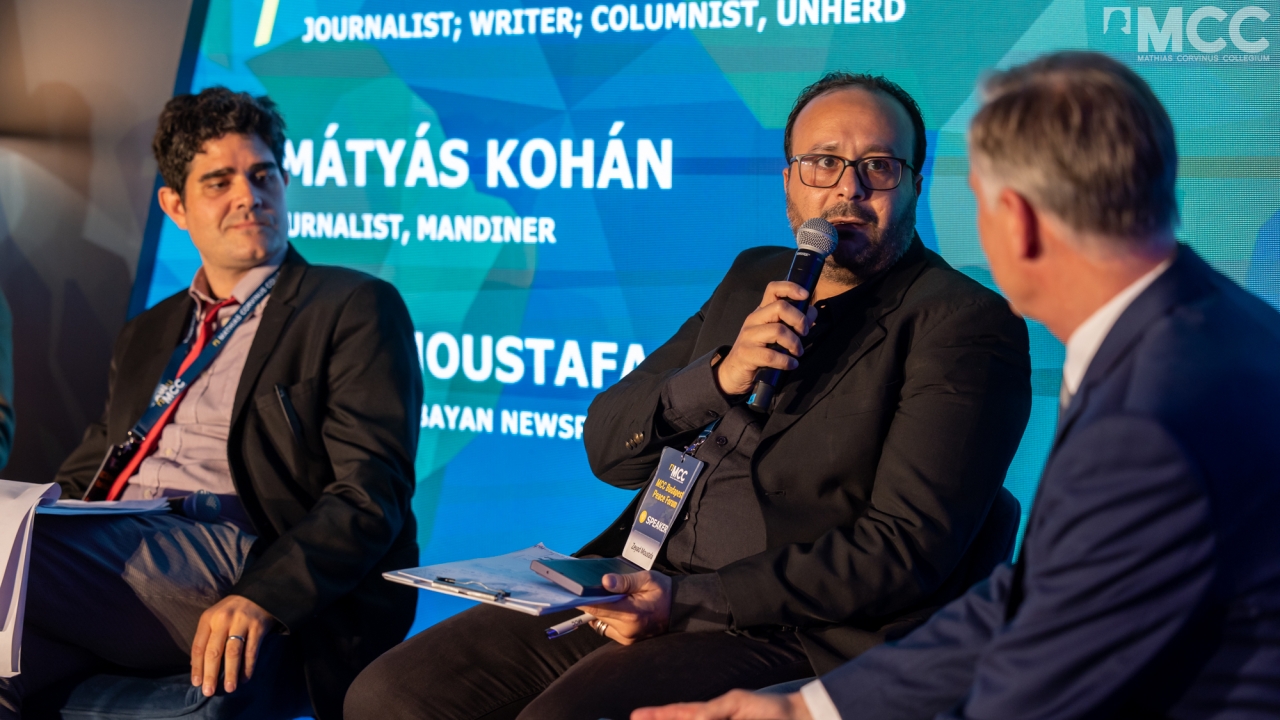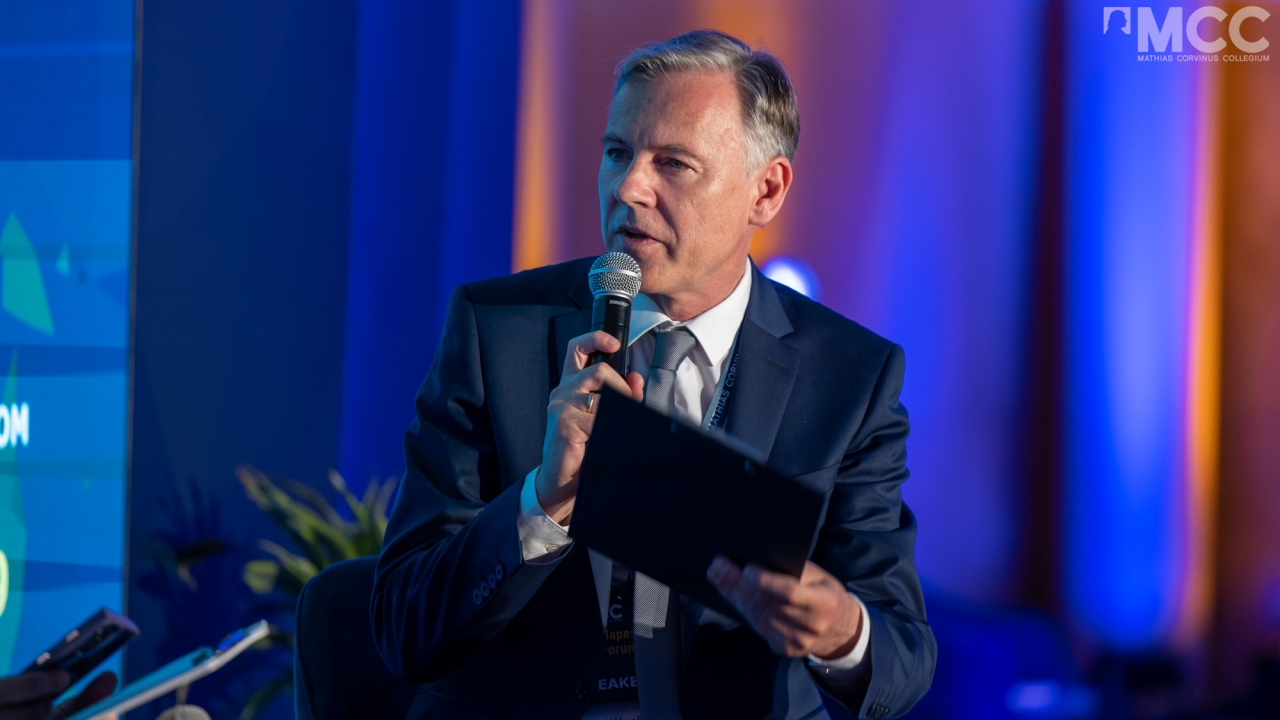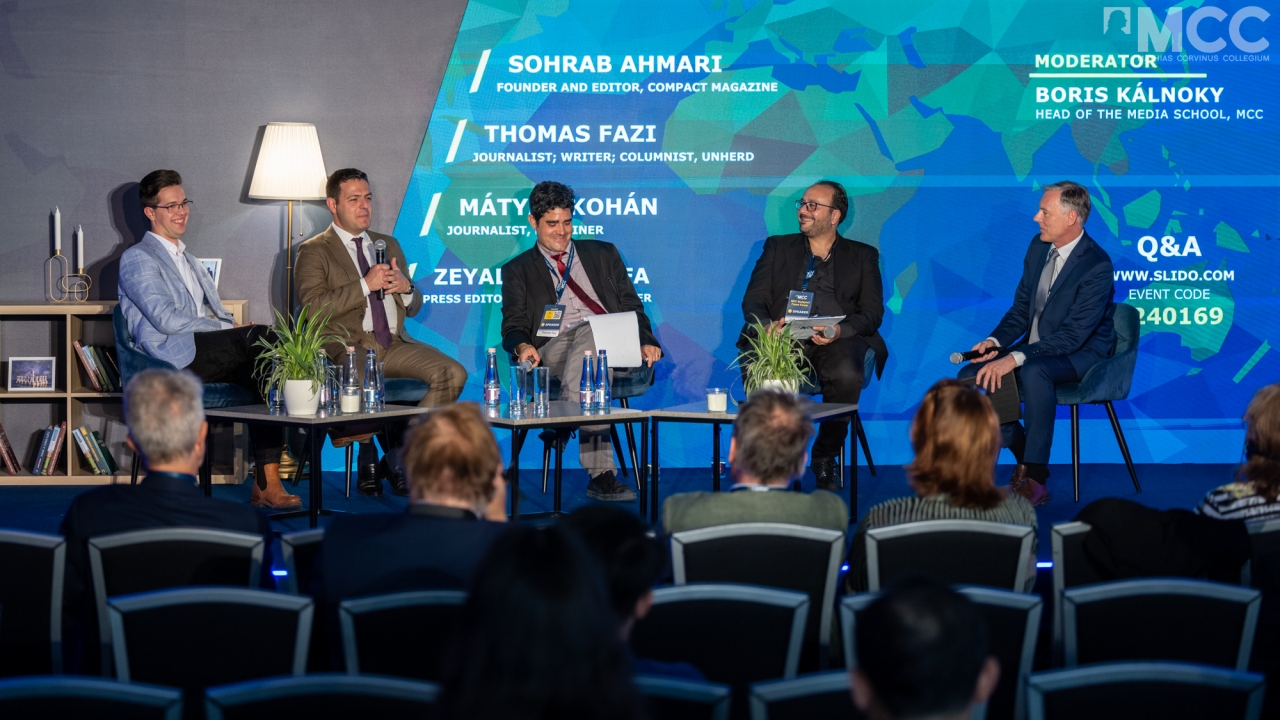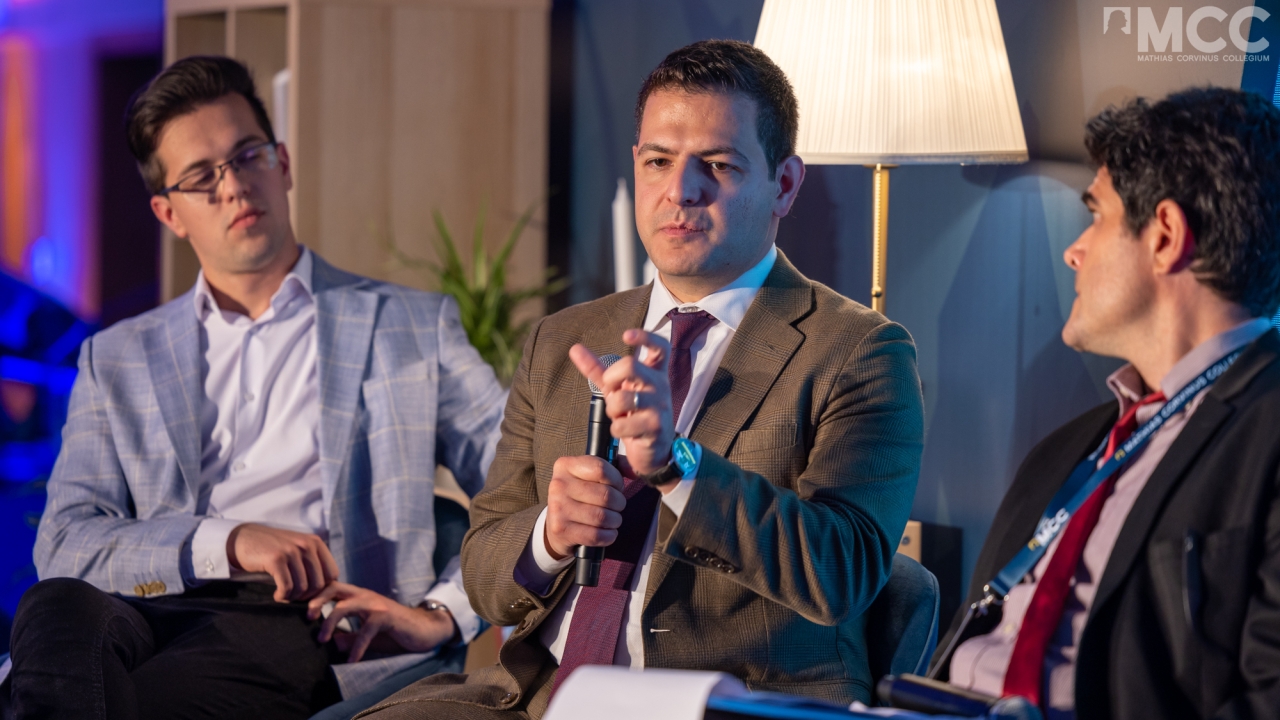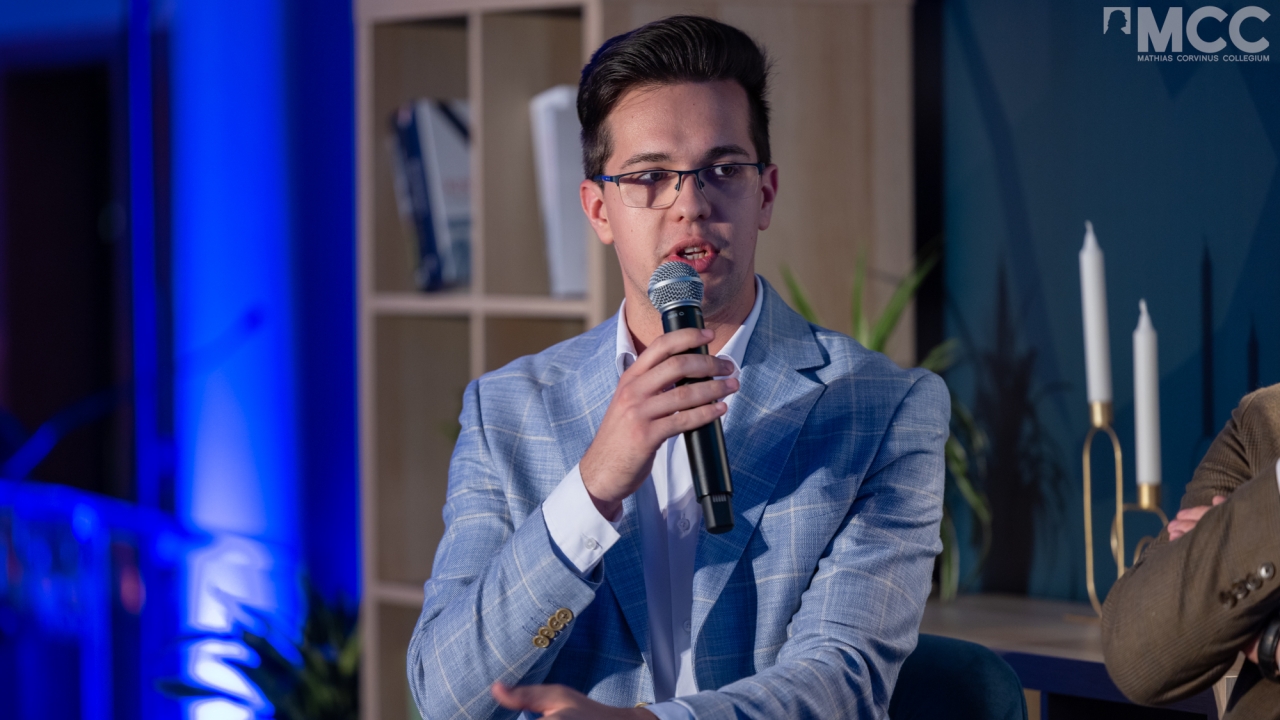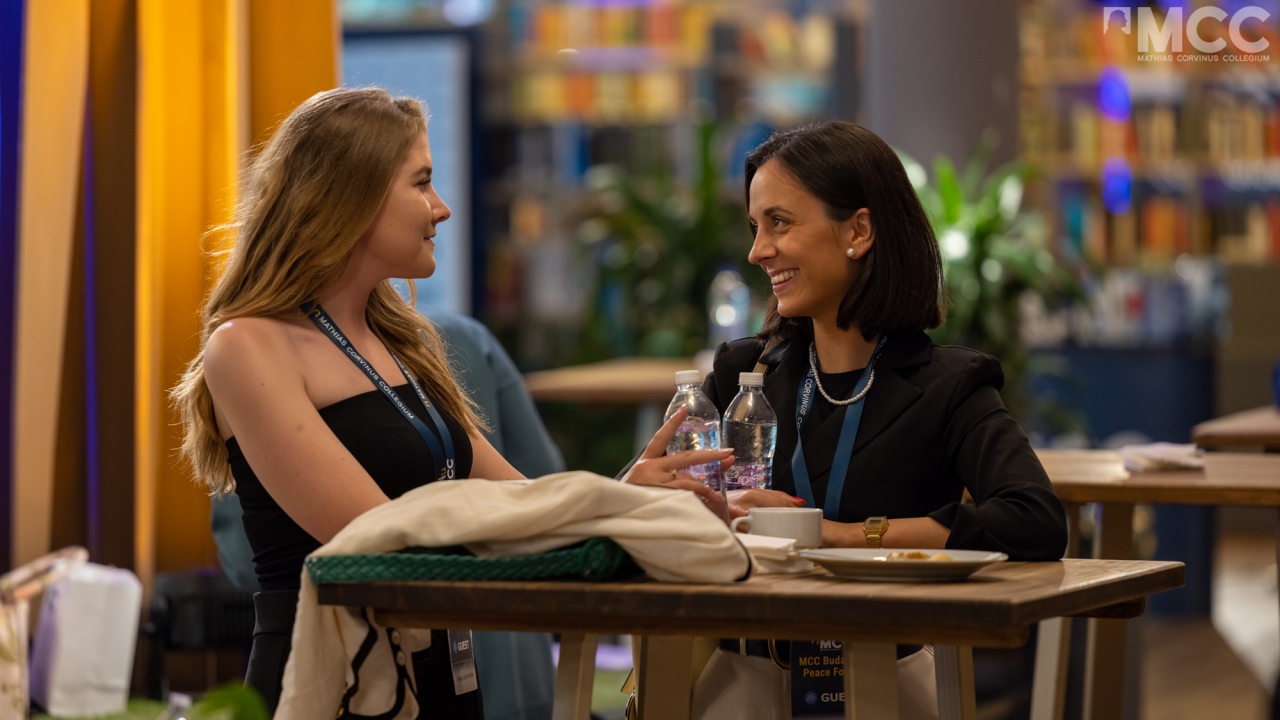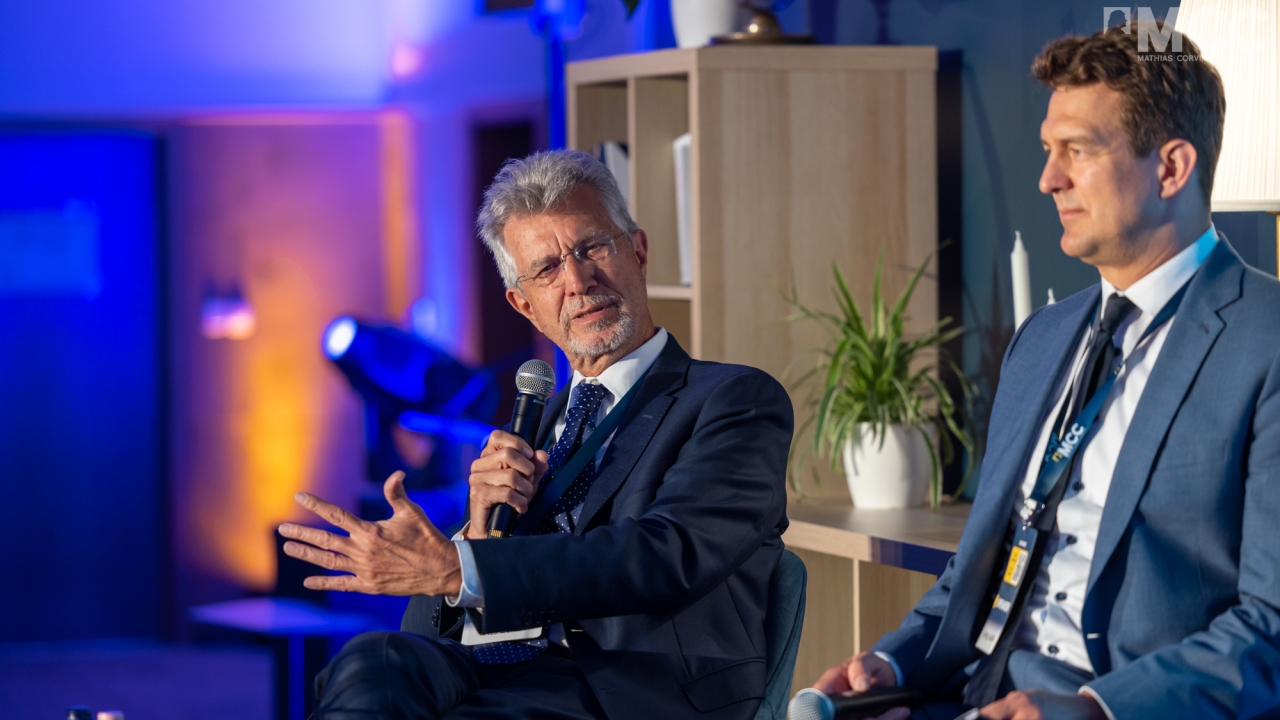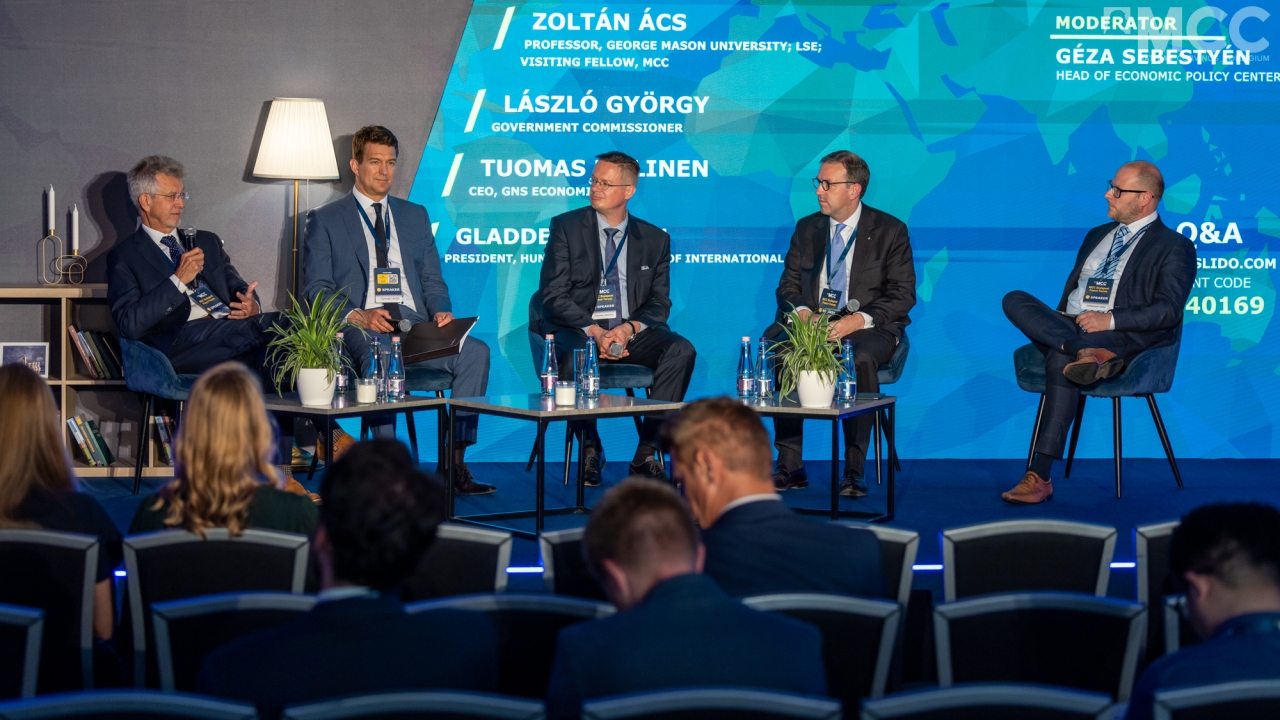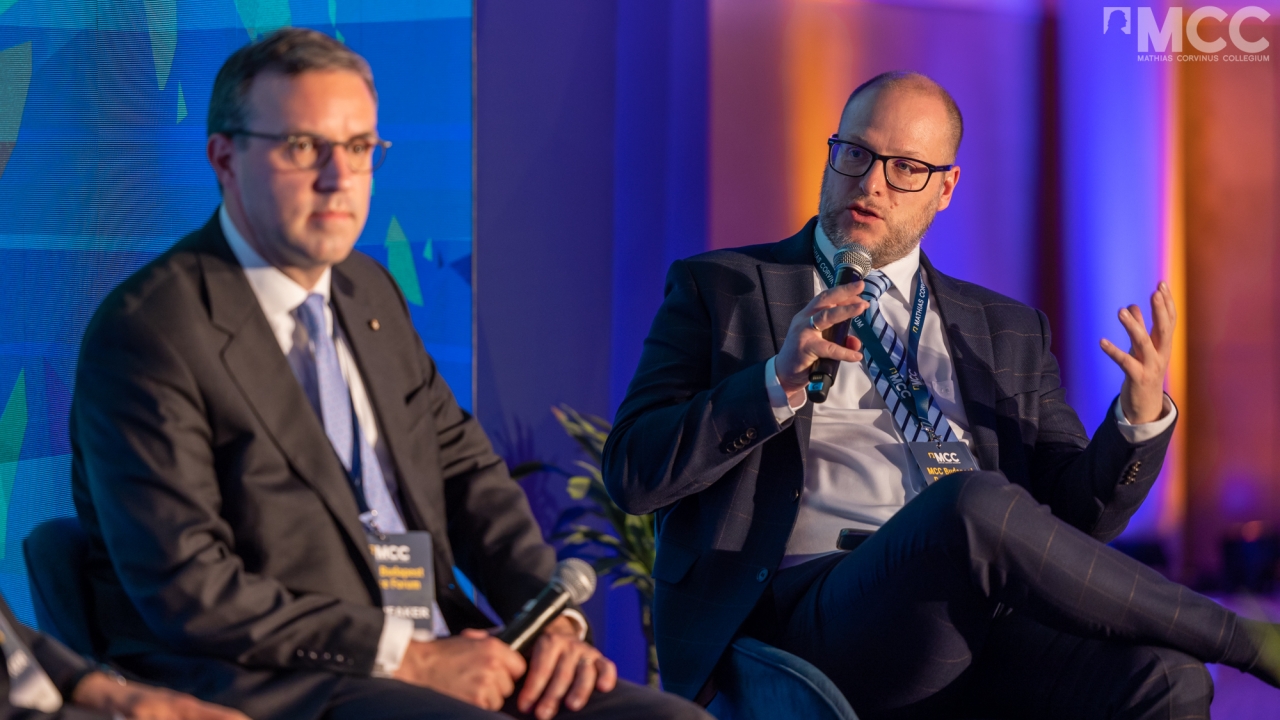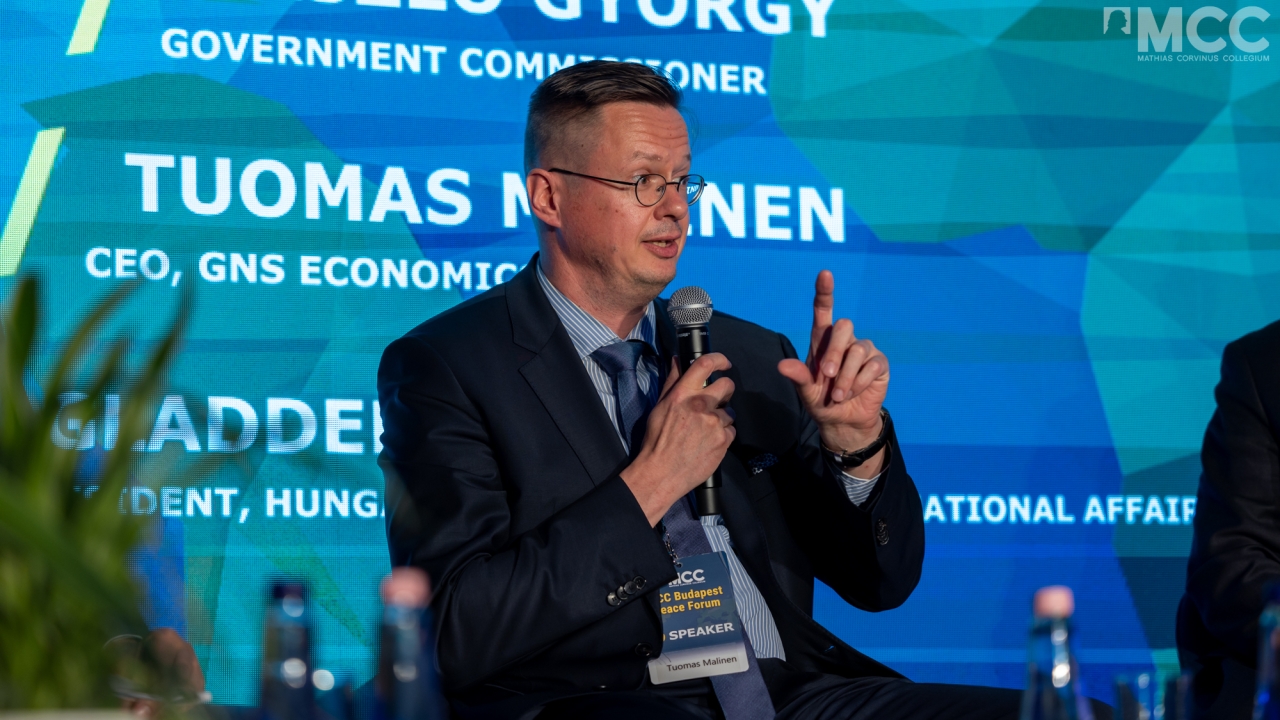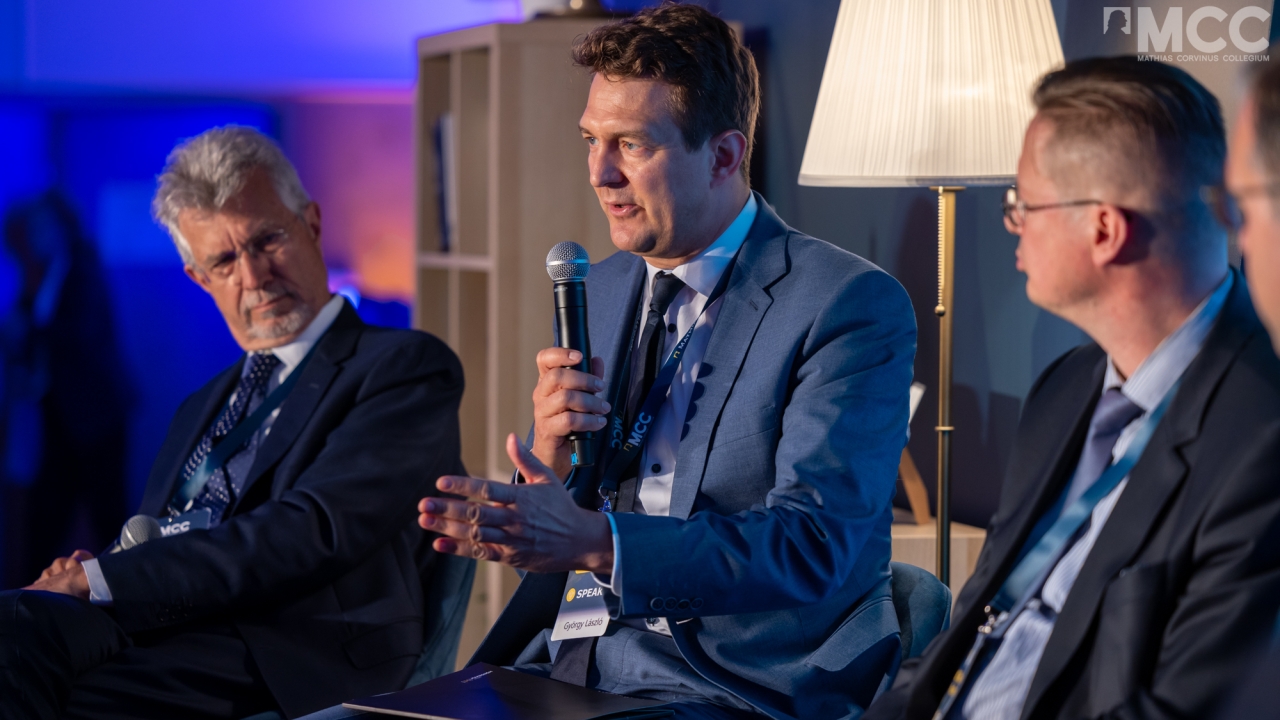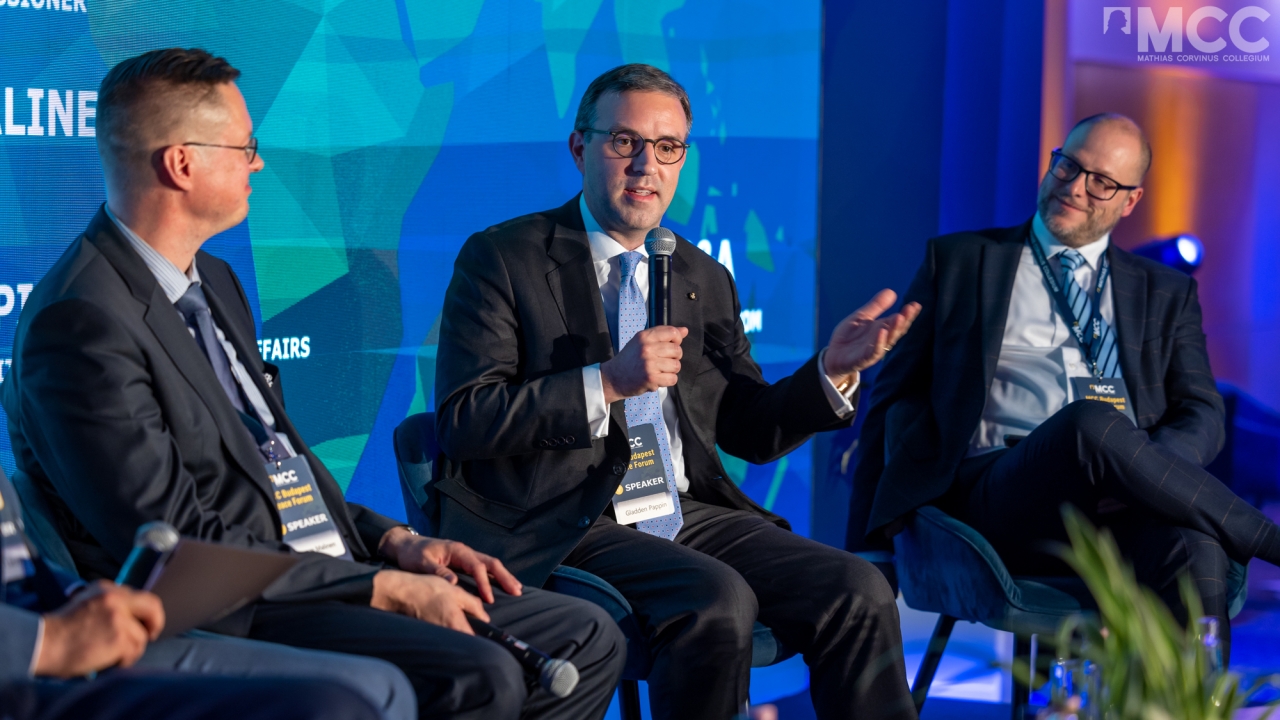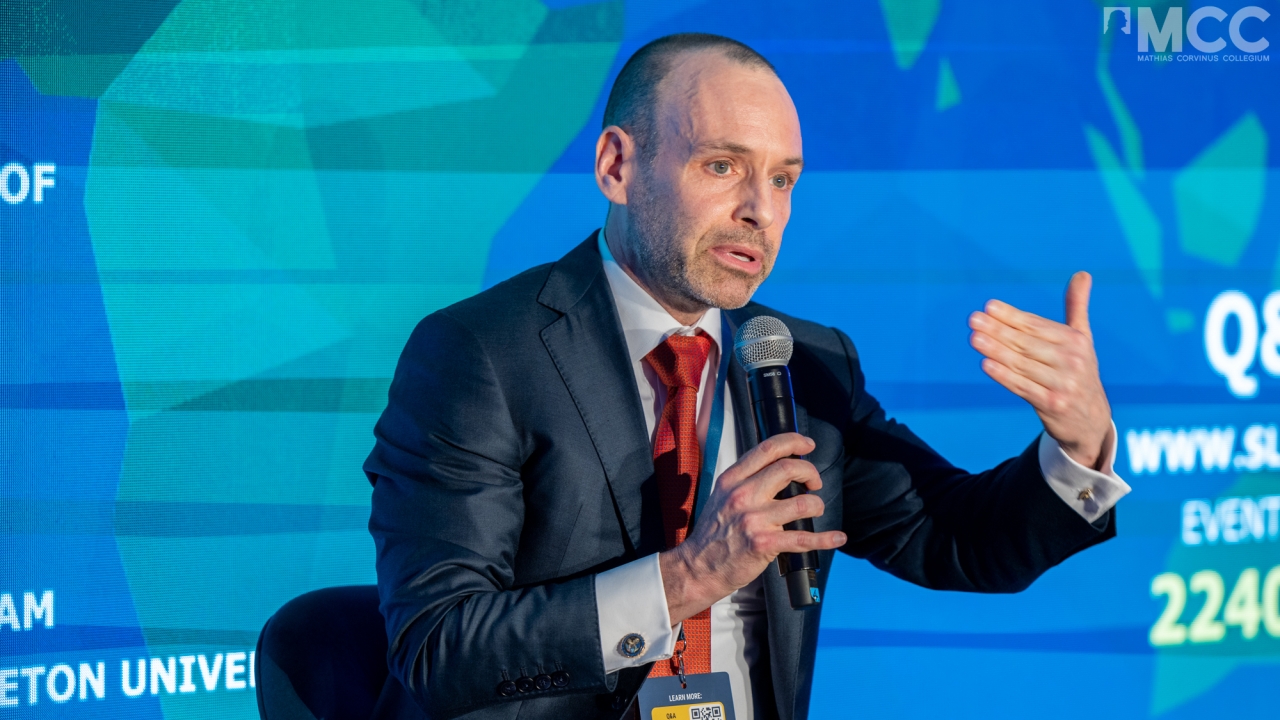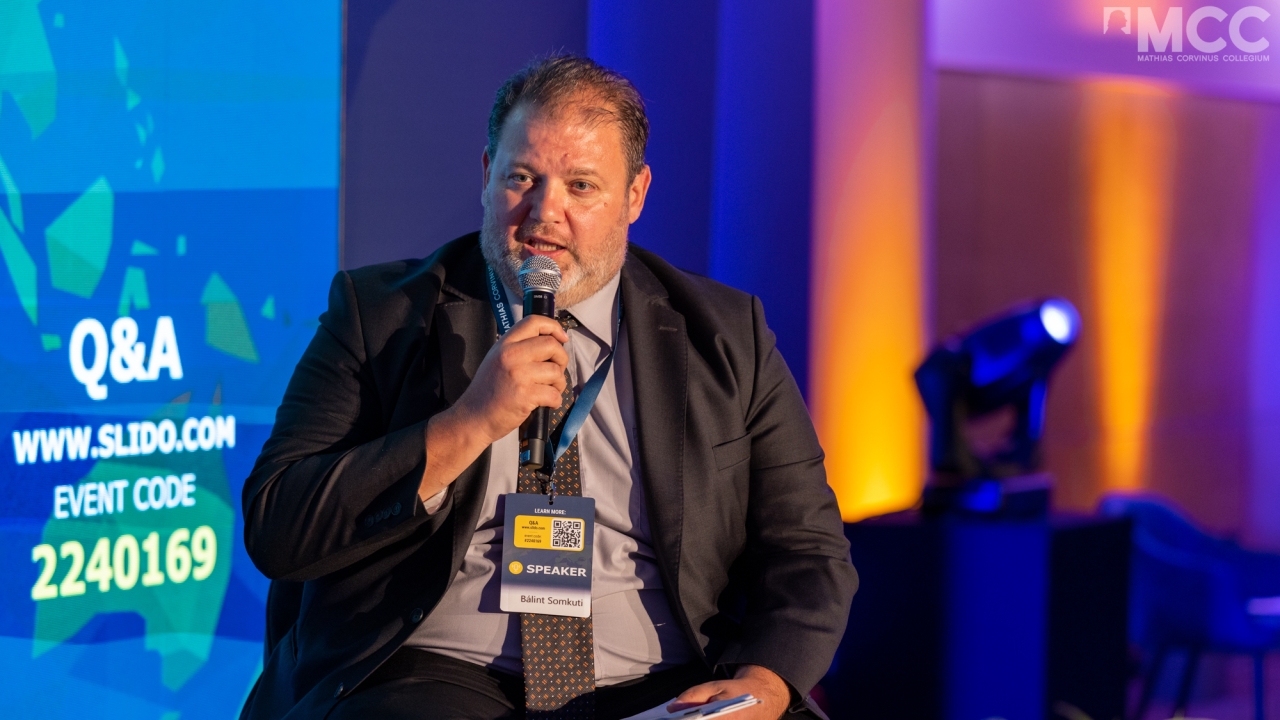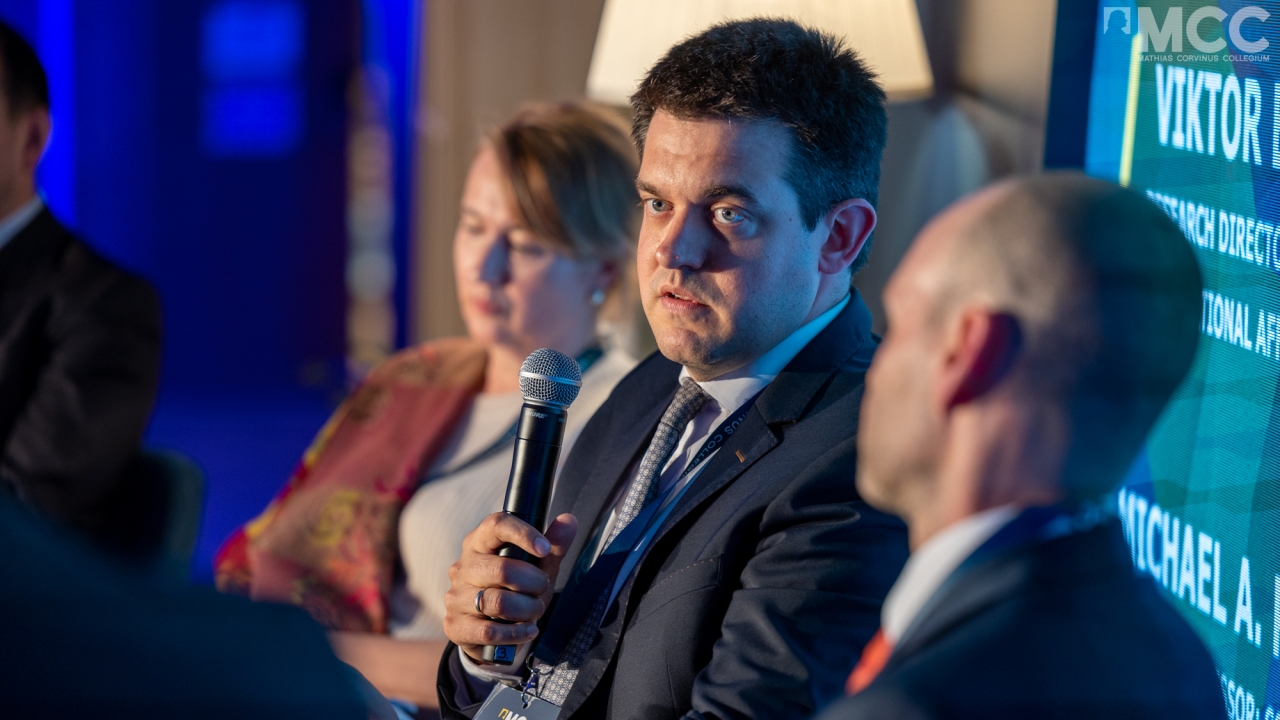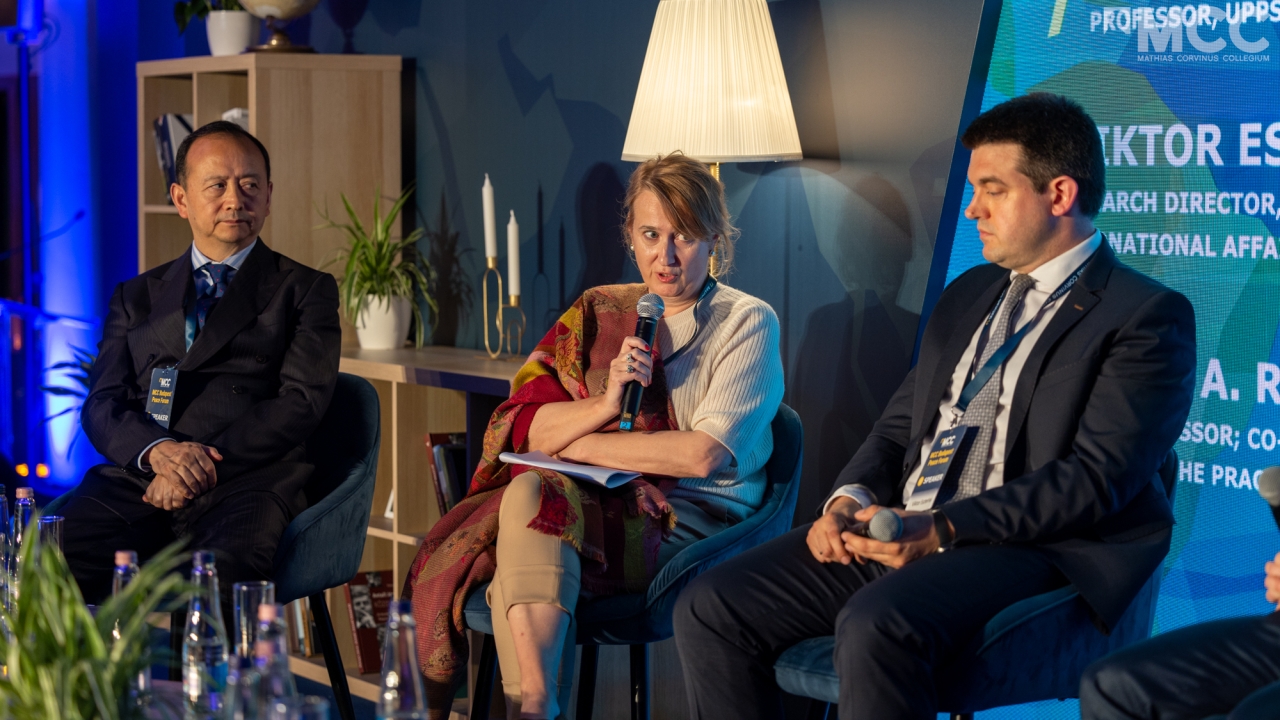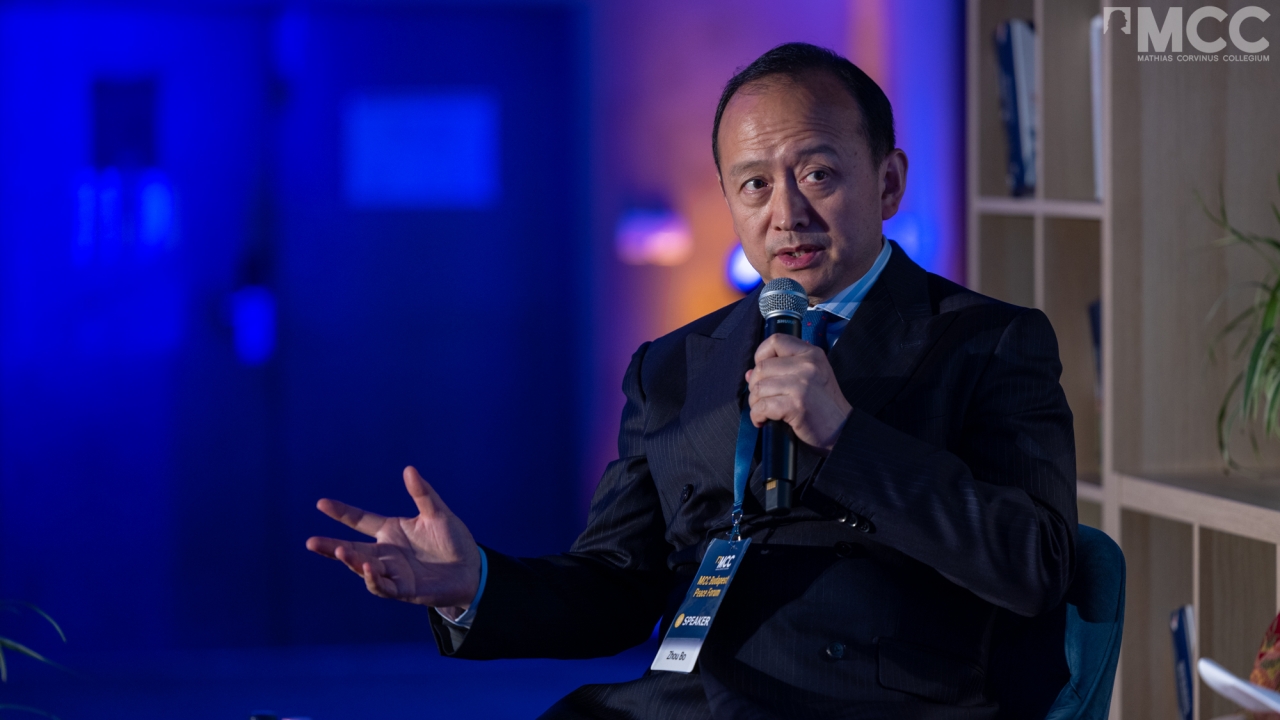Reading time: 13 minutes
The MCC Budapest Peace Forum commenced with 70 speakers, including 35 foreign experts from more than 20 countries, and hundreds of interested attendees. Academics, public figures and renowned experts stressed the importance of peace and shed light on the main issues through sharing their scientific and expert opinions on the subject.
“Peace is in Europe's vital interest”- Zoltán Szalai
The Budapest Peace Forum aims to highlight, from as many angles as possible, why an immediate peace deal is of vital importance for Europe - stressed Zoltán Szalai, Director General of MCC, in his welcome address. He also reminded the participants that MCC was particularly committed to the cause of peace as the institution has a training center in Transcarpathia, the westernmost province of Ukraine. In Beregszász (Berehovo) MCC is working to train talented youth from the local Hungarian minority.
“Only peace can assure security for Hungary"- Péter Szijjártó
Hungary’s Minister of Foreign Affairs and Trade, Péter Szijjártó, welcomed, in his keynote speech, that MCC had the courage to organize a conference of such a scale on the subject. He warned that in Europe, it takes courage to talk about peace, and in some countries, it is even impossible to do so in public.
Criticizing EU policy, the minister pointed out that the EU has not only been gripped by the hysteria of sanctions, but has allowed the US to drag the member states into a competition over who can help Ukraine more. Mr. Szijjártó drew the audience's attention to a serious consequence of the war, the re-formation of global blocs. He stressed that Hungary's interest was to achieve a speedy peace, as only peace can assure security for Hungary.
The MCC Budapest Peace Forum continued with a discussion where renowned experts each advocated for peace. Speakers on the first panel included Omar Ashour, Professor at the Doha Institute for Graduate Studies, Riva Ganguly Das, former Secretary of the Indian Ministry of External Affairs, Kishore Mahbubani, former President of the UNSC, Jeffrey Sachs, Director of the Center for Sustainable Development at Columbia University and Frank Füredi, Director of MCC's Brussels Center.
Paving the Path to Peace
“We must listen to the voices urging peace”-Jeffrey Sachs
According to Jeffrey Sachs, the 21st century is no longer an American century. This is evidenced, he argued, by the fact that Ukraine has been in an intensifying state of war for 9 years. The professor recalled that, with Turkish mediation, Ukraine and Russia almost reached an agreement shortly after the outbreak of the war, but the US opposed it. In his view, NATO should stop listening only to the United States and begin heeding countries like Hungary and Turkey, which stress the importance of peace and negotiations. Professor Sachs emphasized that he had great sympathy for Ukraine, but contrary to US opinion, arms transfers do not bring about peace, nor do they save the lives of the Ukrainian people.
Omar Ashour pointed out that most peace treaties have collapsed in recent decades and initiating and maintaining peace is a major challenge. Today, he lamented, there are many peace initiatives, but little peace. The professor reminded the audience that while peace is expensive, it is never more expensive than war. Peacebuilding is always worth the investment, even if its cost are high.
Riva Ganguly Das noted that Asia has maintained a different approach to global peace. India considers the UN as the main forum for peaceful resolutions but needs to be reformed. The UN, she argued, needs to reflect the present-day reality instead of the post-World War II state of affairs when it was established. The expert also mentioned the several ways the war has impacted both India and Asia and given the fact that a significant part of the world's population lives in the region, maintaining stability and peace there is of paramount importance.
Kishore Mahbubani, the former UNSC President, addressed the conference in a video message. He wished the forum every success as peace is much needed in the world. He said that the G7 countries saw themselves as the guardians of the world order, but their way of thinking is based on the past century. The truth, he warned, is that the G7 are guarding the "old order", which is dangerous for the whole world.
Frank Füredi, bemoaned the fact that the war is sustained by mutually reinforcing factors. The professor pointed out that while the war taking place between Russia and Ukraine is superficially about sovereignty, it has become a proxy war between NATO, led by the U.S., and Russia. The head of MCC's Brussels center believes that the West does not grasp the importance of national interest which is an essential driving force for peace negotiations.
What Changes Will the War Bring to the World?
In the second panel of the MCC Peace Forum, experts explored the global impact of war.
Caroline Galacteros, President of GEOPRAGMA, believes that if the leading powers do not change their stance, the conflict is not likely to end in the near future. She pointed out that a militarily devastated Ukraine, even with NATO's help, might not be able to serve as a bulwark against Russia. The war may end, she argued, when we recall that Europe's security is based on peace and mutual dependence on each other.
Mohammed Ahmed Gain, President of the African Institute for Peacebuilding and Conflict Transformation, claimed that world powers were stuck in the past. He stated that there will be no winner in this war because both belligerents are fighting an unwinnable war, resulting in a frozen conflict. According to Mr. Gain, Ukraine has become a puppet representing the interests of another power in a manner eerily reminiscent of the Cold War era.
William Ruger, President of the American Institute for Economic Research, said that it was impossible to predict future developments in Ukraine, but that the war would probably drag on for some time, as there are many who have an interest in financing it. He stressed that Ukraine's courage and its right to self-defense must be acknowledged, but that this does not mean that this bloodshed can be financed indefinitely and we must avoid the spiral of escalation.
Michael von der Schulenburg, a former German diplomat at the UN and fellow at the Organization for Security and Cooperation in Europe, does not see a chance for peace in the foreseeable future. In his views, a de facto - rather than negotiated - ceasefire could be in place by the end of the year but peace still looks a distant prospect. Regardless of this bleak reality, he maintained that a ceasefire must be the goal of all efforts. What is worrying is that the parties cannot even agree on what this war is about.
Diplomacy Must Grasp the Essence of the Conflict and Take Into Account the Human Casualties
Suay Nilhan Acikalin, the Deputy Director of Graduate Studies at Ankara's Haci Bayram Veli University argued Ukrainian-Russian conflict posed an unprecedented challenge to diplomacy. With the nature of this war being different from previous conflicts, the diplomatic literature does not provide any practical guidance on how to reach a peace deal. Suay Nilhan Acikalin stressed the importance of the mediation capacity of great powers, such as Turkey. There is hope for peace, she promised, but that it requires broader consultations involving several other countries besides Ukraine and Russia.
Betul Dogan Akkas stressed that the methods and direction of diplomacy in this war could not be based on Western ones. Civilisational cultures and nations may have vast differences in their goals, so unilateral pressure would not be effective. Responding to a question, Ms. Akkas also said that in addition to geopolitical and economic interests, the human side of the conflict must also be taken into consideration. This is the only way to move closer to peace.
Arta Moeini, Research Director of the Institute for Peace & Diplomacy, insisted that diplomacy must grasp the essence of the conflict and understand the different stances of involved parties. This approach is the foundation of successful peace diplomacy. Unfortunately, he lamented, in the current conflict, neither side is willing to do so. Furthermore, he reminded the audience that besides the Russian and US-Ukrainian standpoint, 70% of the world's population are calling for peace.
Joon Hyung Kim, professor at Handong Global University, reminded the conference that throughout history, there have been several precedents where great powers pitted against each other in a third country. Professor Kim cited the example of Korea, where a ceasefire was achieved, but no peace treaty has ever been signed. He believes that instead of focusing on territorial interests and partition, it is the issues lying at the core of the conflict that should be resolved.
Balázs Mártonffy, Head of the Institute for American Studies at the National University of Public Service, reaffirmed that diplomacy must consider as many views as possible from different sides. In this situation, increased pressure on either side leads to the deepening of the conflict.
The Crucial Role of Media in Shaping Public Opinion on Peace or War
The fourth panel of the Budapest Peace Forum focused on how peace should be discussed the media, as well as who should talk about peace and where these discussions should take place. Sohrab Ahmari, founder and editor of Compact Magazine, Boris Kalnoky, head of the MCC Media School, Thomas Fazi, journalist, writer and columnist for Unherd; Mátyás Kohán, journalist for Mandiner, and Zeyad Moustafa, editor of Albayan newspaper also addressed the issue of marginalized opinions in the media, the reasons behind the escalation of the war, and possible scenarios of peace.
Zeyad Moustafa, warned the audience against talking about a win-win situation here. Even if Russia wins, he insisted, it will still lose on both economic and demographic levels. In such situations, he argued, it is through diplomacy that we have the greatest chance to find a solution.
Thomas Fazi pointed out that there are powers not interested in peace. This war, he asserted, is in reality between the United States and Russia, and, from an economic point of view, between the US and the EU. Stronger economic and international incentives, he suggested, could bring the major powers to the negotiating table. Thomas Fazi also highlighted the role of the media. The Western narrative is distorting the situation, portraying Putin as a bloodthirsty dictator.
Sohrab Ahmari explained that the war represents the interests of sections of US political and business elites. He argued that while, in theory, everyone wants peace, in reality, most Americans are not interested in the distant war. The economic elite, on the contrary, are trying to make the current conflict serves its interests as much as possible such as making China its sole rival.
Mátyás Kohán, in response to Boris Kálnoky's question as to why peace is so hard to achieve, explained that there are nations whose interest do not oppose the war. In fact, he asserted, there are countries that intentionally promote the propaganda that those who desire peace are pro-Russian. As an example of this, Mr. Kohán argued Hungary's reaction to the war is limiting the country's options. Peace, he concluded, is not something pro-Russian, instead it means that peace negotiations, instead of the battlefield are where interests should be reconciled.
At the conclusion of the panel, all participants agreed that the media has a major role to play in how the public is informed about the war. Being pro-war, moralizing arms transfers, or focusing on casualties do not service the need for peace.
Minimizing Human Casualties is Above Economic Interests
Gladden Pappin, Head of the Hungarian Institute of International Affairs, argued rising energy prices were a clear consequence of the war. The American academic and expert also warned that high energy prices have put Western European companies in a very difficult situation and reduced their competitiveness with overseas rivals. Dr. Pappin pointed out that the war only has losers, and Moreover, he elaborated, the conflict has triggered processes whose effects will only be felt later, in particular, he mentioned, distrust in the US dollar is one of the consequences of the war, which will also have far-reaching effects on the economy of the US.
Zoltán Ács, Professor at George Mason University and visiting lecturer at MCC, agreed with his American colleague regarding the consequences of the war while also mentioning how much money the world has spent on arms supplies so far. He stressed that in the first year of the conflict alone, The United States has sent about 50 billion dollars’ worth of arms to Ukraine. He also noted that the war has definitively hit Europe much harder than the United States. Zoltán Ács also warned that if the conflict is prolonged, the cost of the war will increase significantly. Regarding peace, Zoltán Ács noted that the path leading to a peace deal was not yet visible and how to reintegrate Russia into the international community is also an open question. For the moment, he asserted, the minimization of human casualties should be the priority of peace.
László György, a Hungarian Government Commissioner, continued to speak on the economic consequences of the war, in particular their effect on the Hungarian economy. He noted that the Hungarian economy had suffered significant damage and lost much of its growth potential in the last year.
Tuomas Malinen, CEO of GnS Economics, sees his country's accession to NATO as a clear sign of the escalation of the war. The Finnish expert nevertheless warned that an isolated, cornered Russia does not serve anyone's interests. Regarding inflation, he mentioned that food prices in Finland have also increased significantly, mirroring what has occurred throughout Europe.
Clarifying Spheres of Influence is Key to Peace
Zhou Bo, a senior researcher at Tsinghua University, stated during the closing discussion of the first day of the Budapest Peace Forum that we are witnessing a war of interests and spheres of influence. He explained that Ukraine is a battlefield for Russian, American, Asian and European interests. Zhou Bo pointed out in the discussion that while China has no real interest in the Russian-Ukrainian war, China is competing with the United States and the arena for this economic rivalry is in Europe, Southeast Asia and global trade.
Maria Engstrom, Professor at Uppsala University, noted that when it comes to spheres of interest and influence, we are not talking about states, but rather regions. Furthermore, he explained, this war has both cultural and social roots, with much of the conflict being over a country's population or its political leadership deciding which civilization they want to belong to.
Michael A. Reynolds, Associate Professor at Princeton University, gave an example from history: The Cold War in Europe remained "cold" because the great powers, for whatever reason, respected each other's spheres of influence. The current war is the result of this conflict of spheres of interest.
Viktor Esterhai, Director of Research at the Hungarian Institute of International Affairs also put the war in a historical perspective. He recalled that after the disintegration of the Soviet Union, the bipolar world became unipolar, and the current war is one of the consequences of the multi-polarization of the international system. According to Eszterhai, new actors - Russia and China - are challenging the global order, which leads to a redivision of spheres of influence.
The panelists agreed that the issue of spheres of interest and influence should be clarified at the negotiating table, without which there can be no lasting peace.
The Budapest Peace Forum will continue on Wednesday and later in the week, exciting presentations will be held at MCC's various training centers throughout Hungary.
